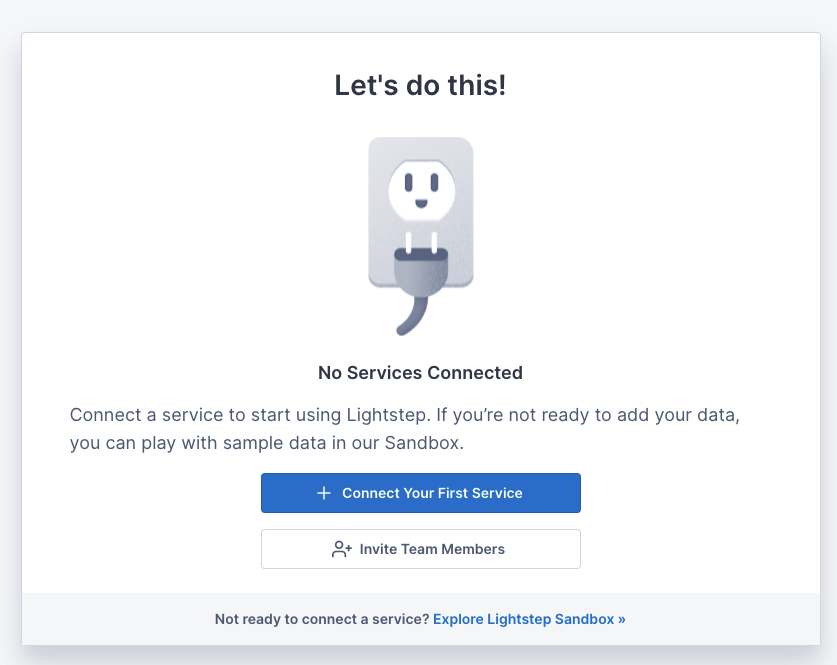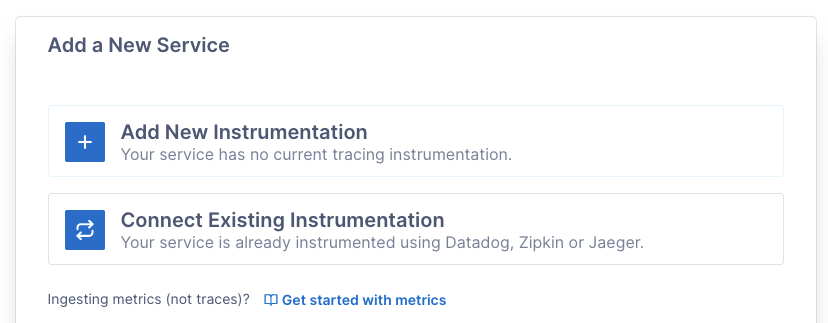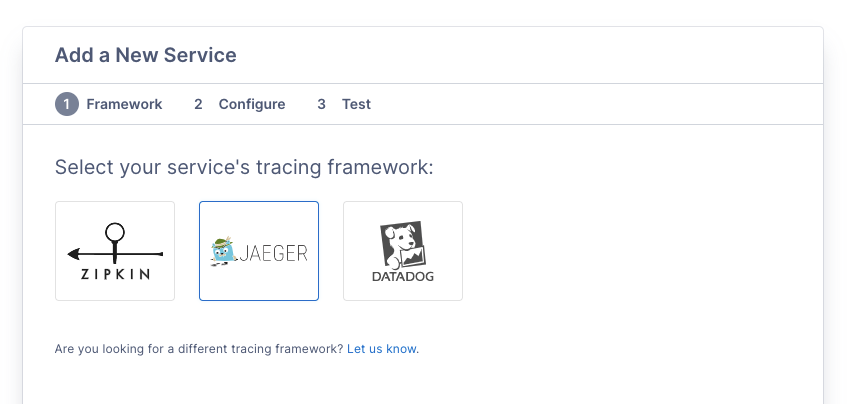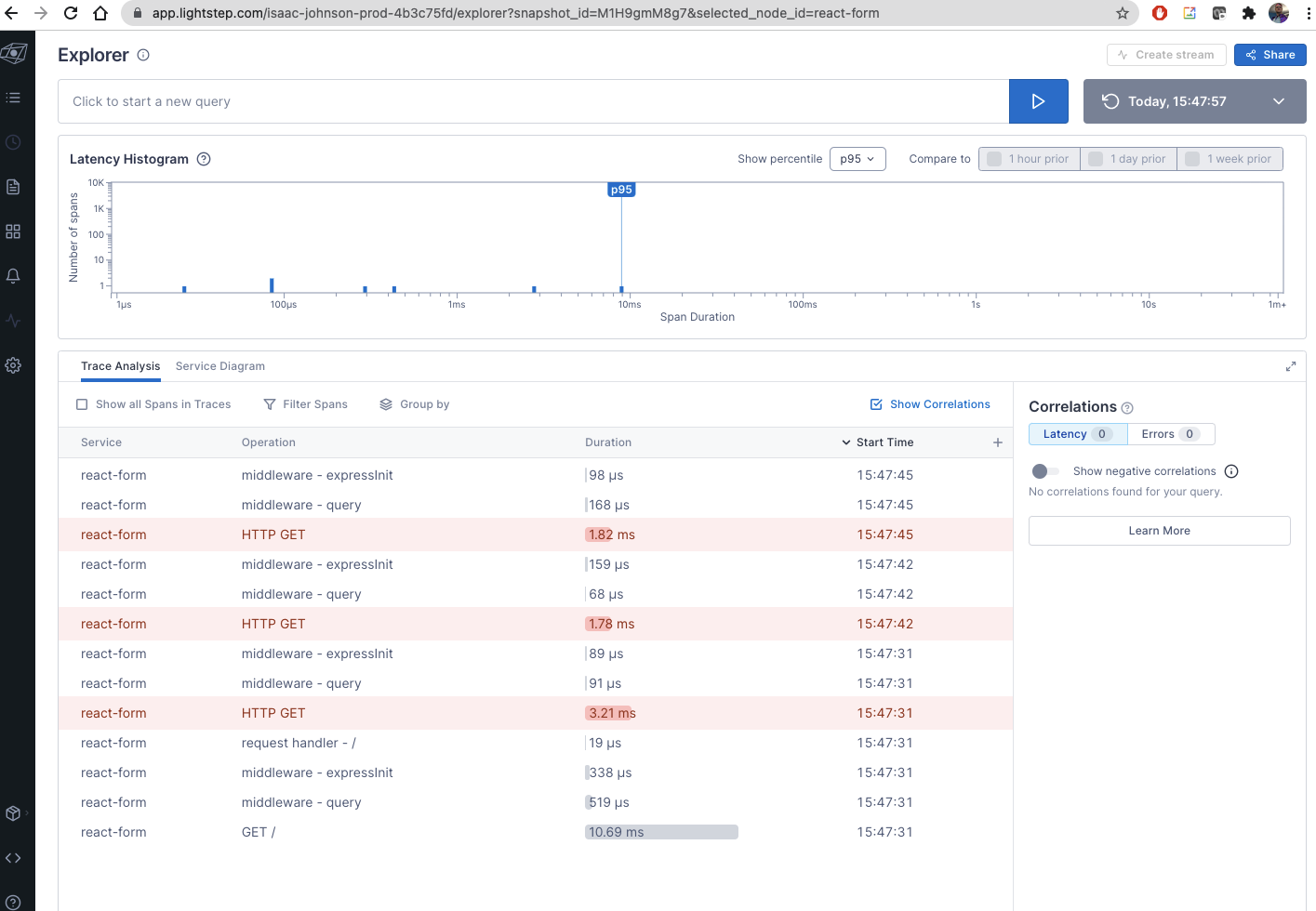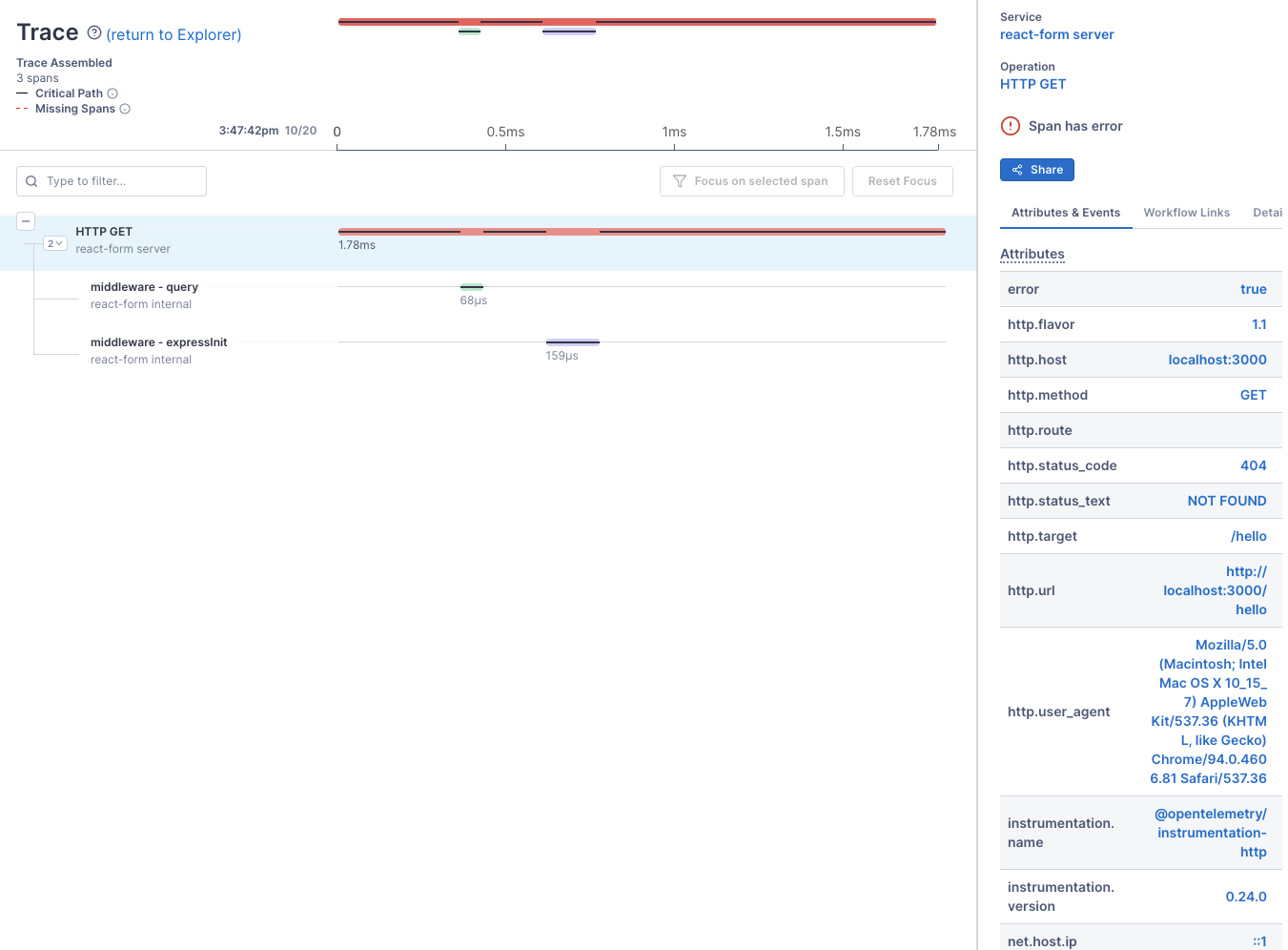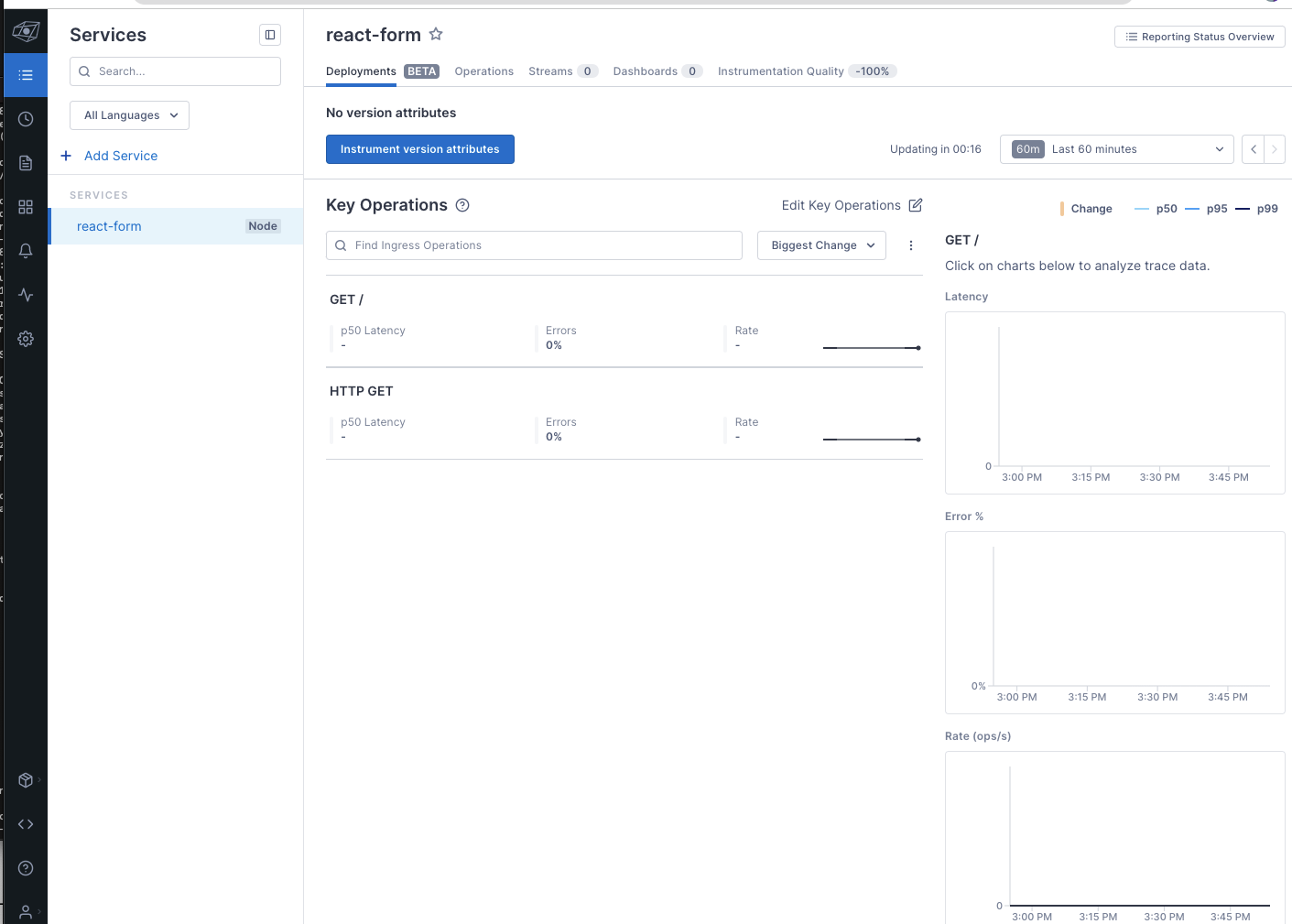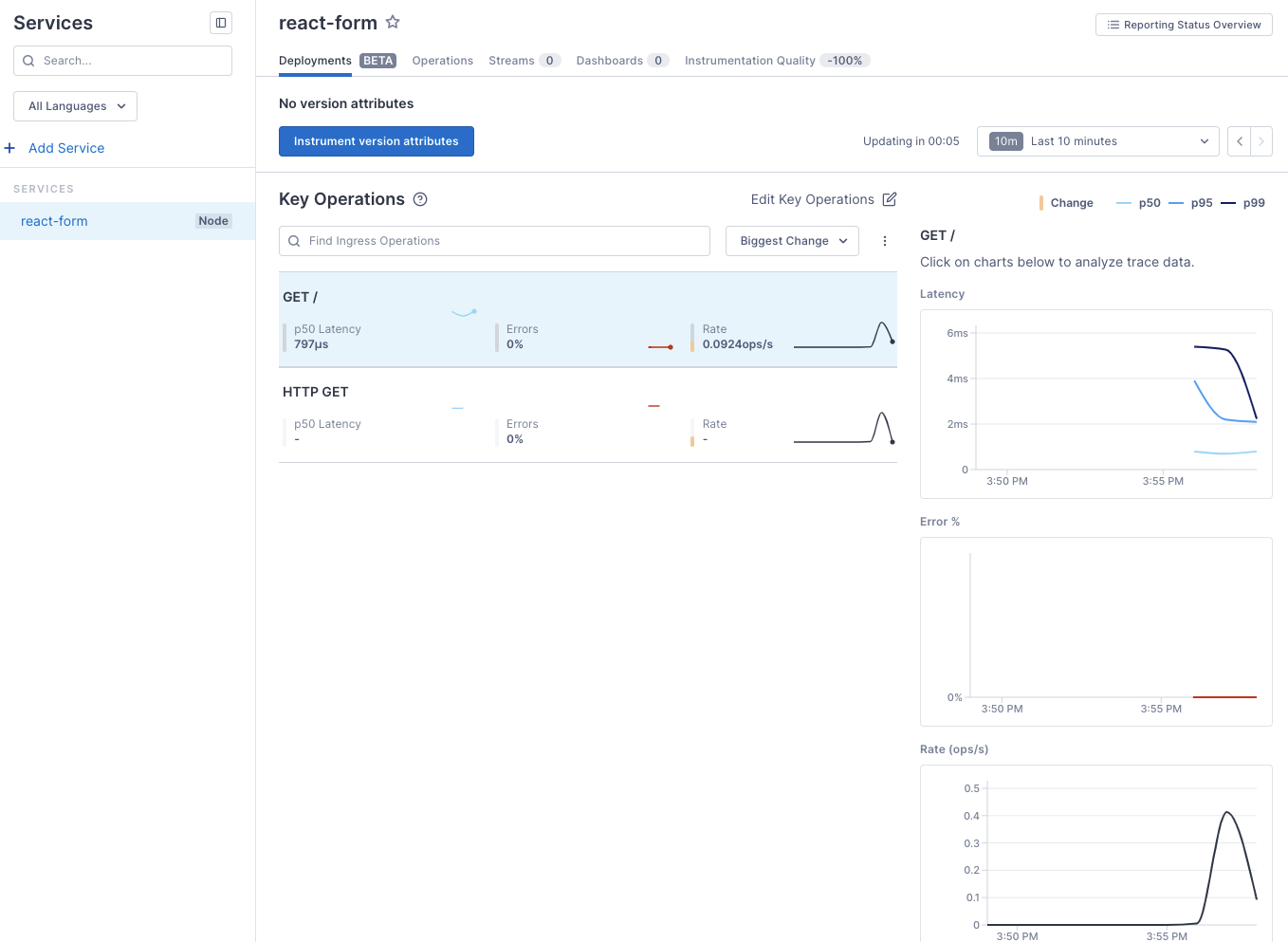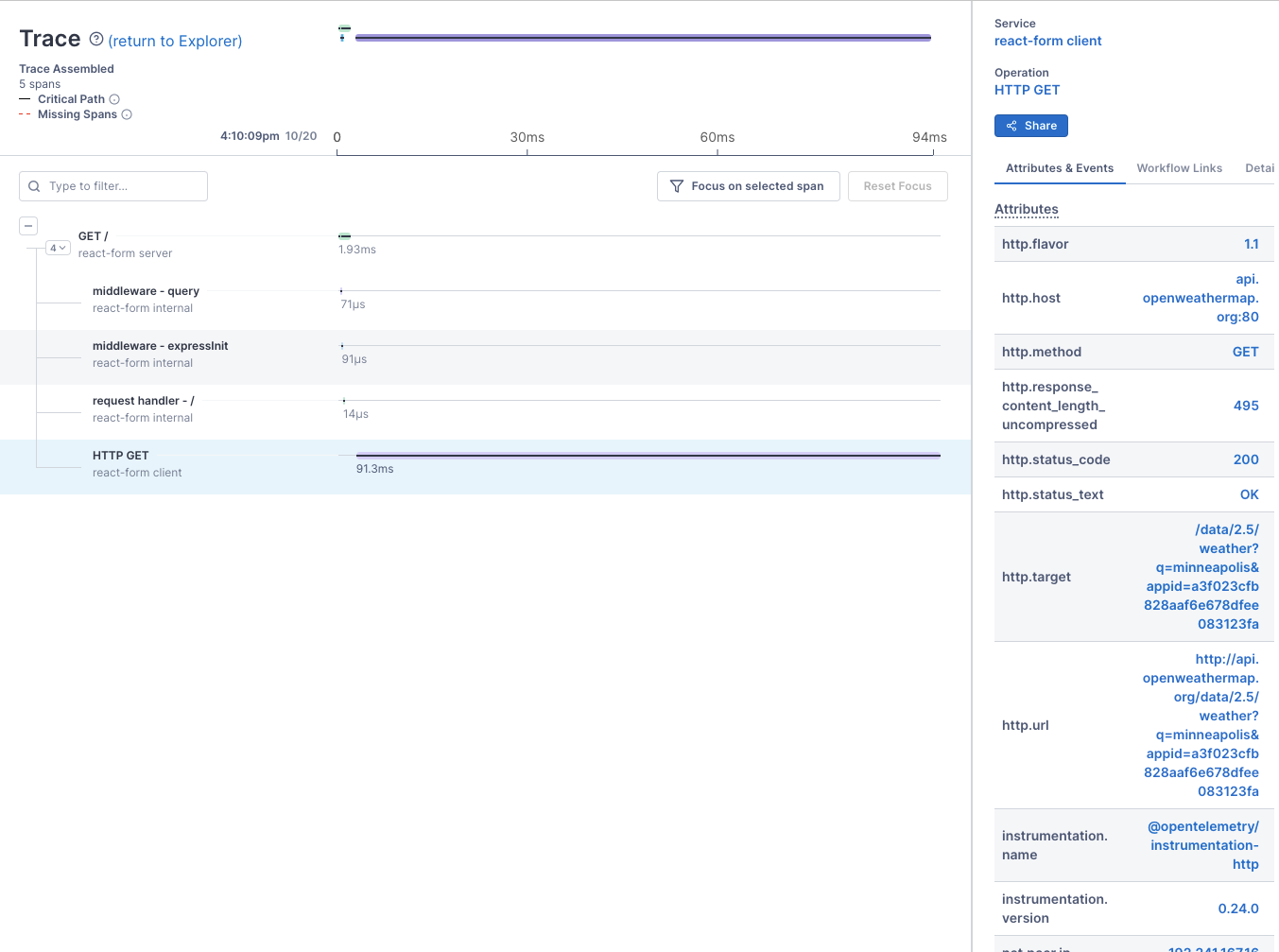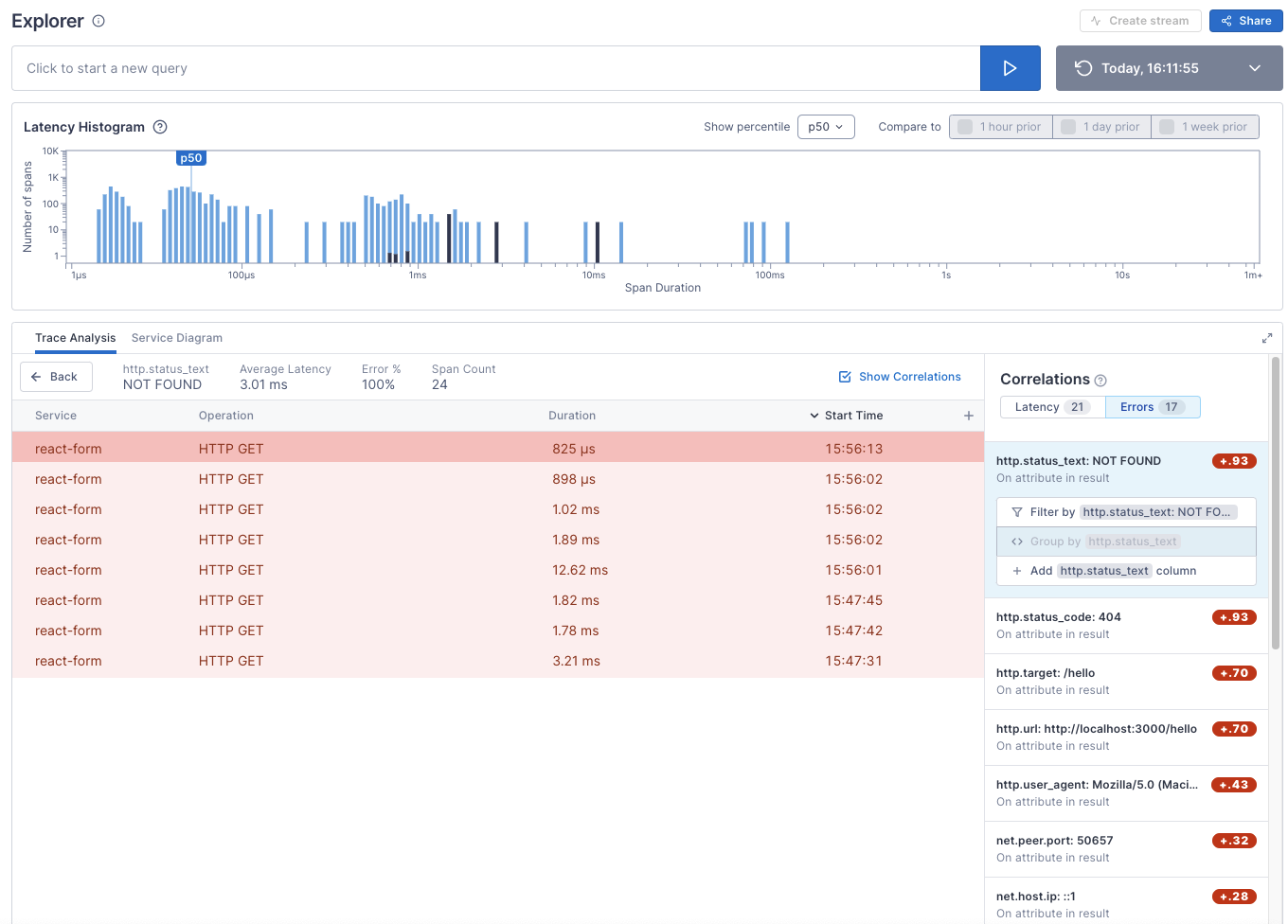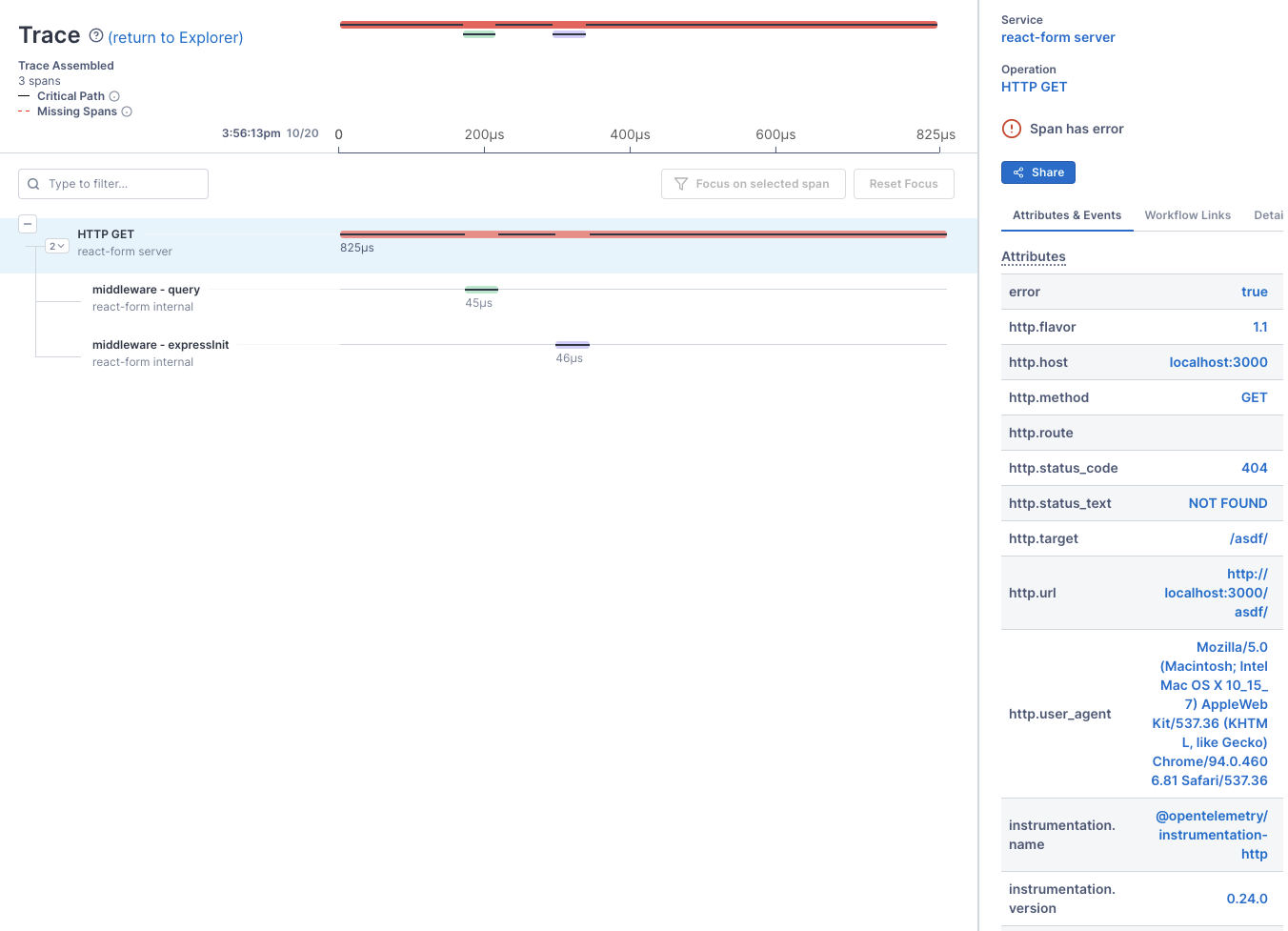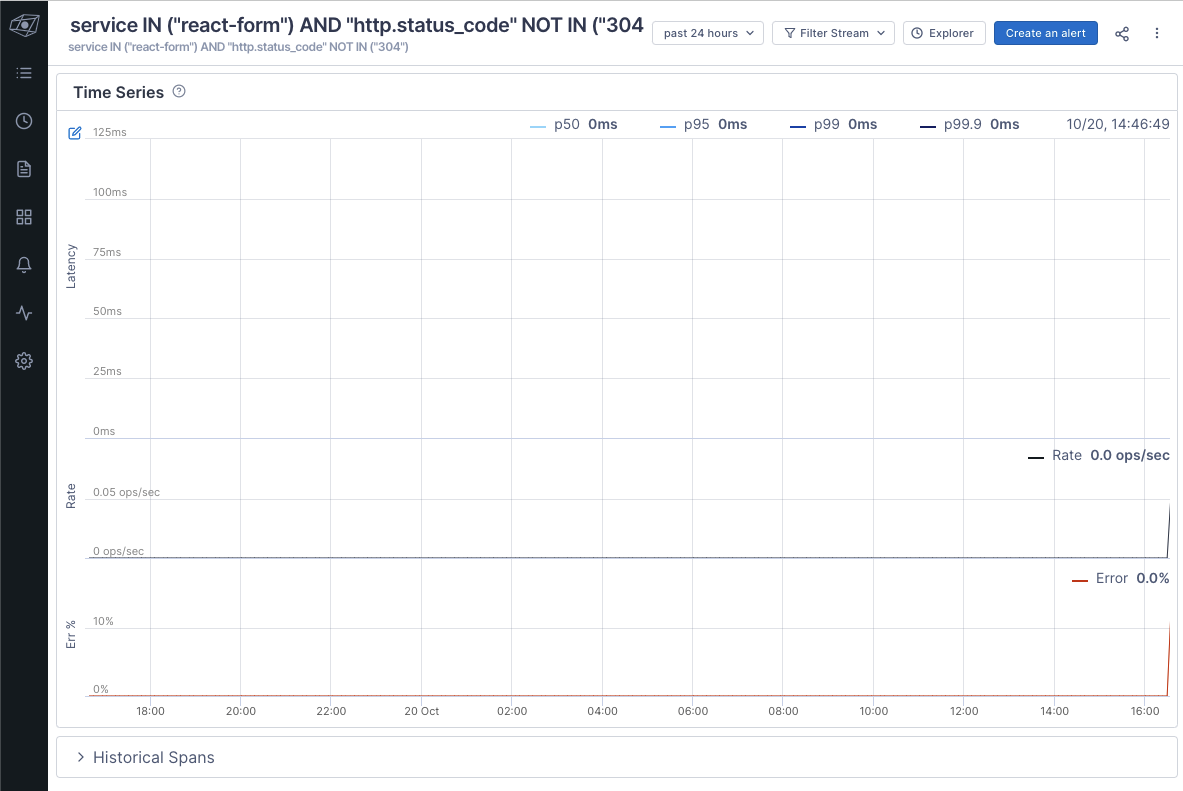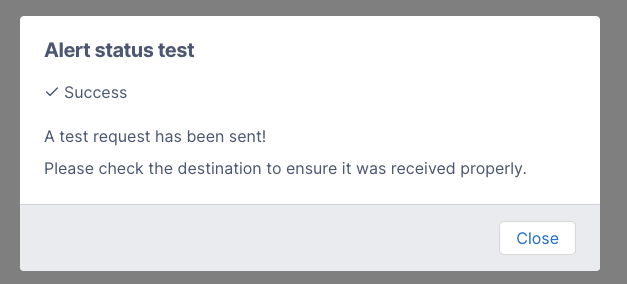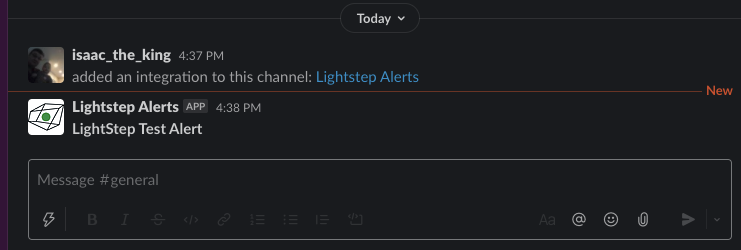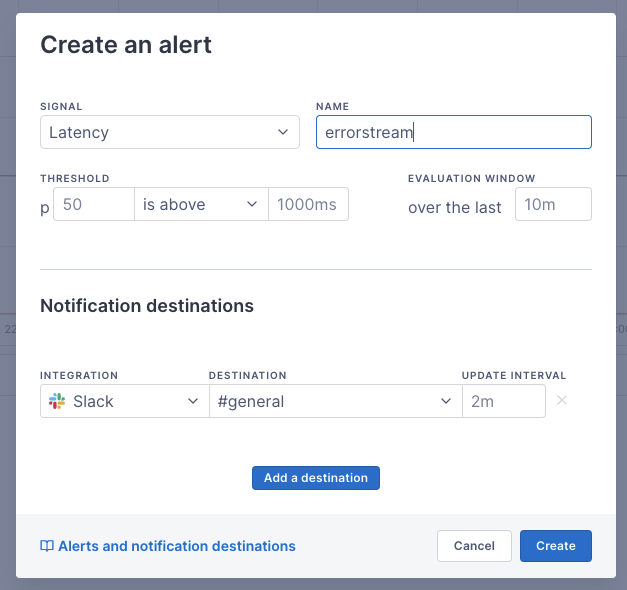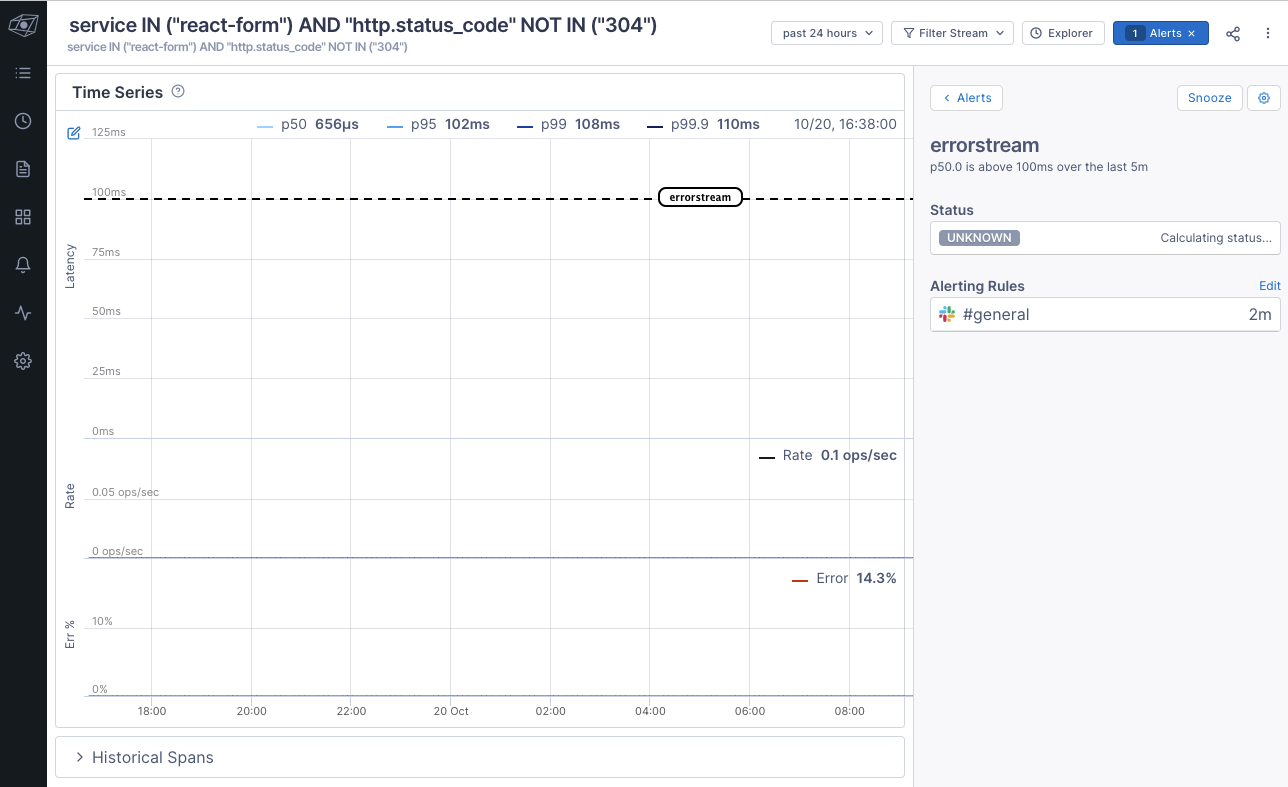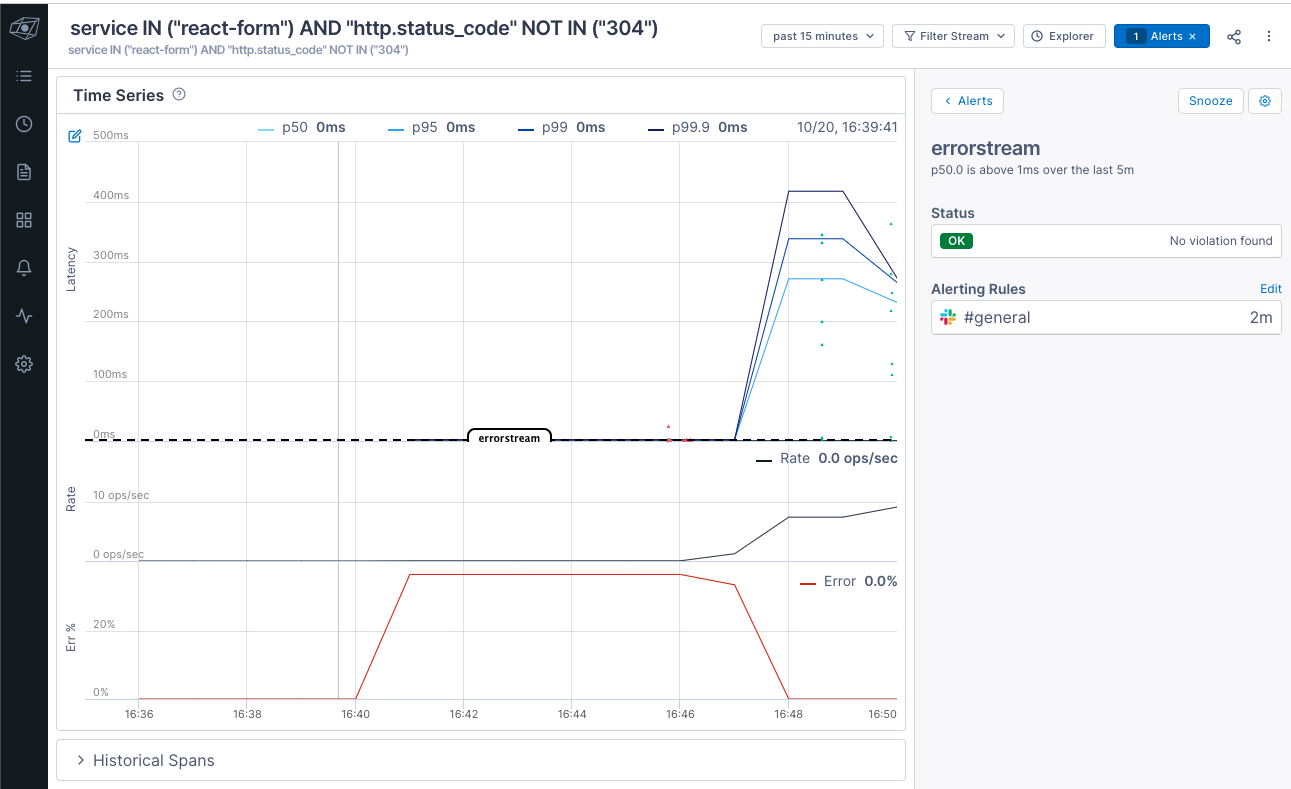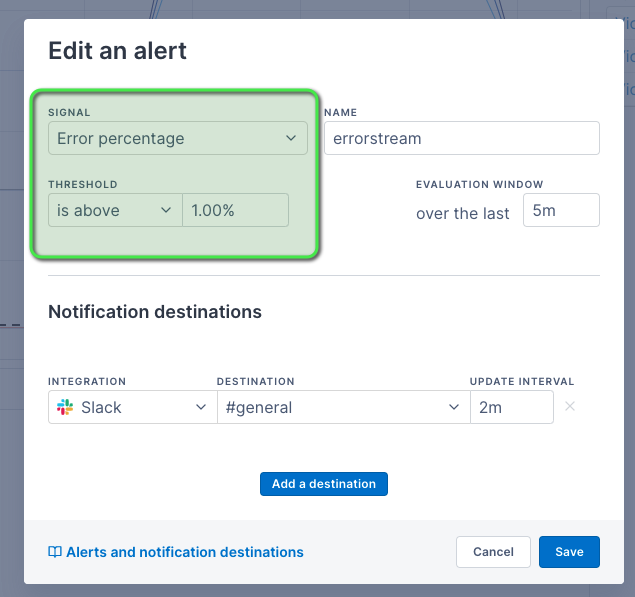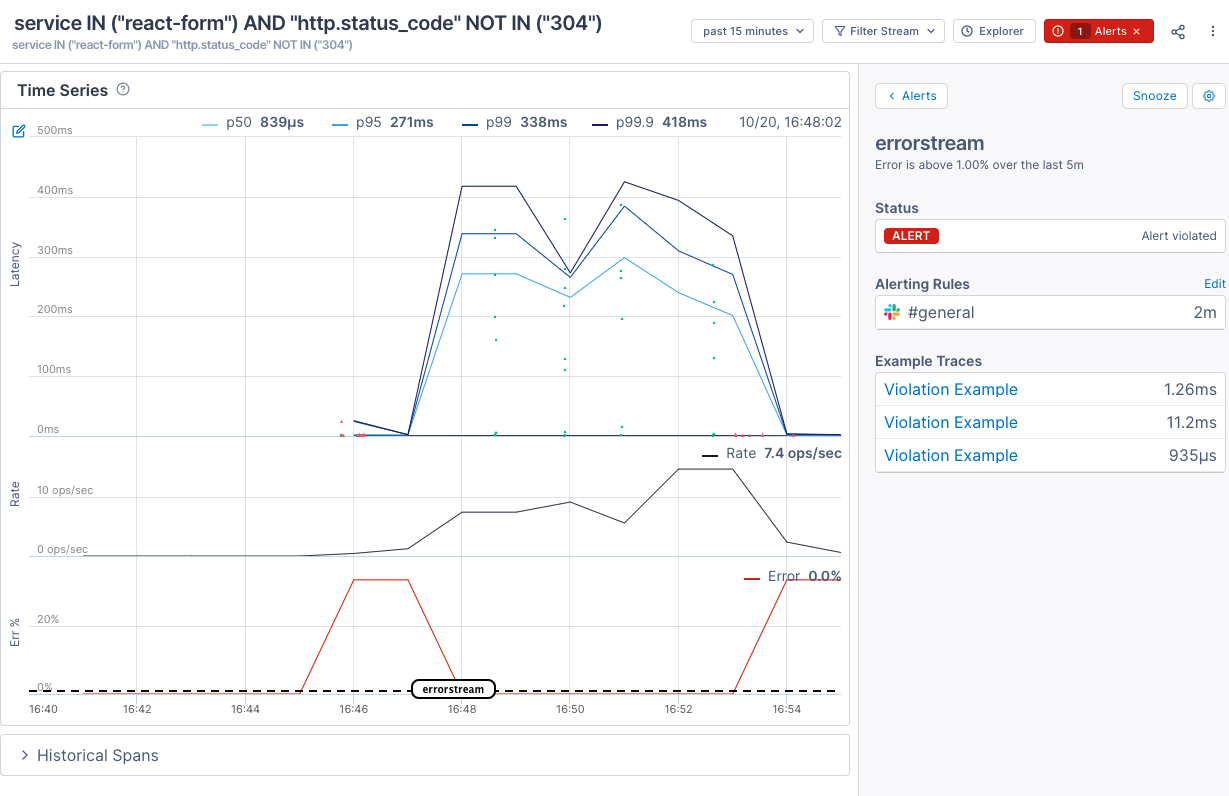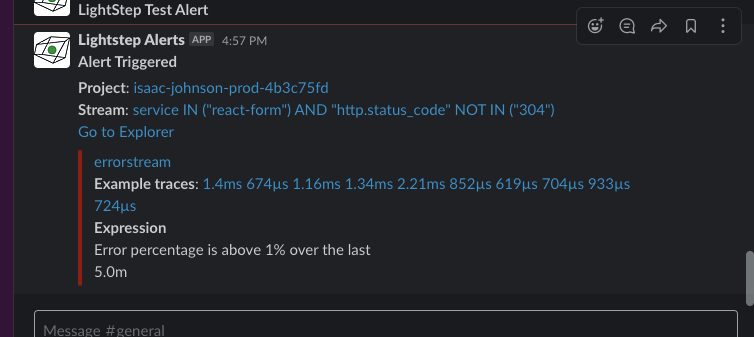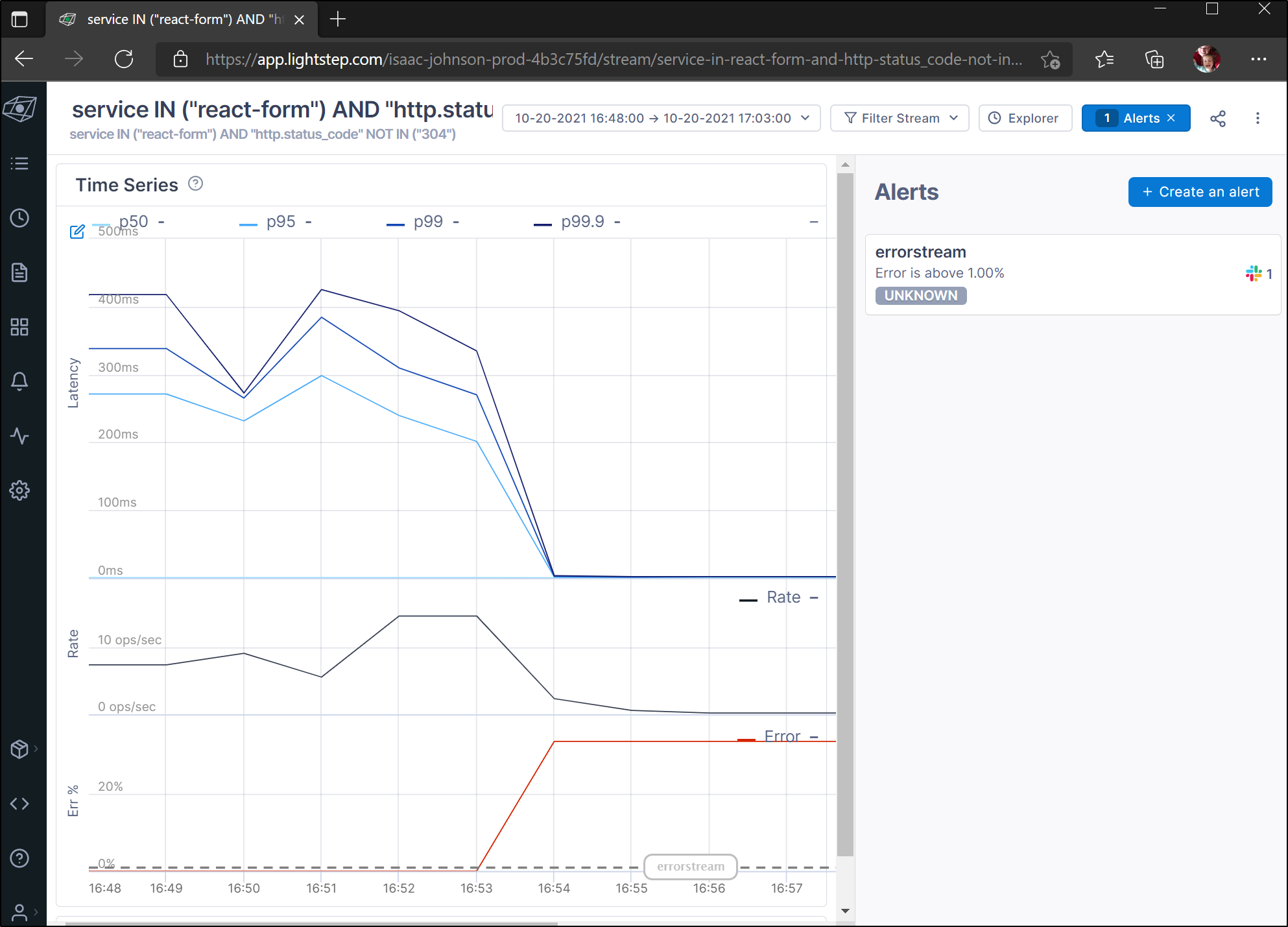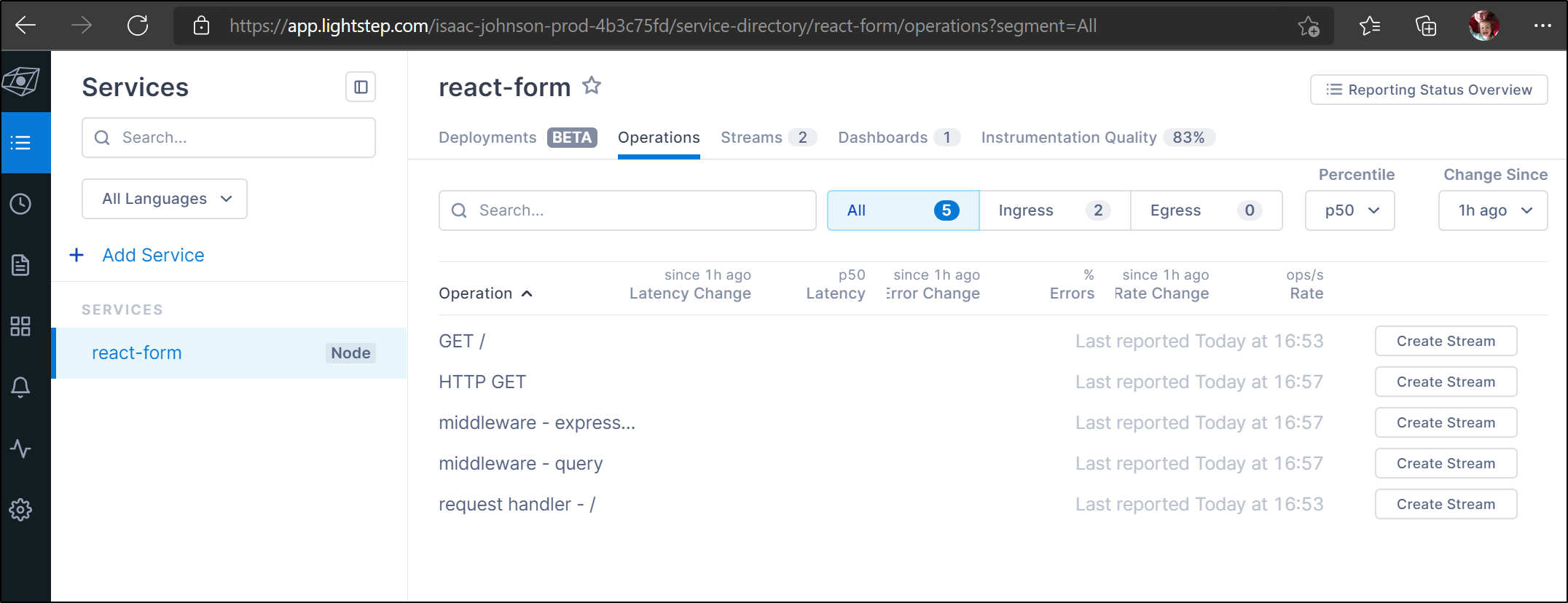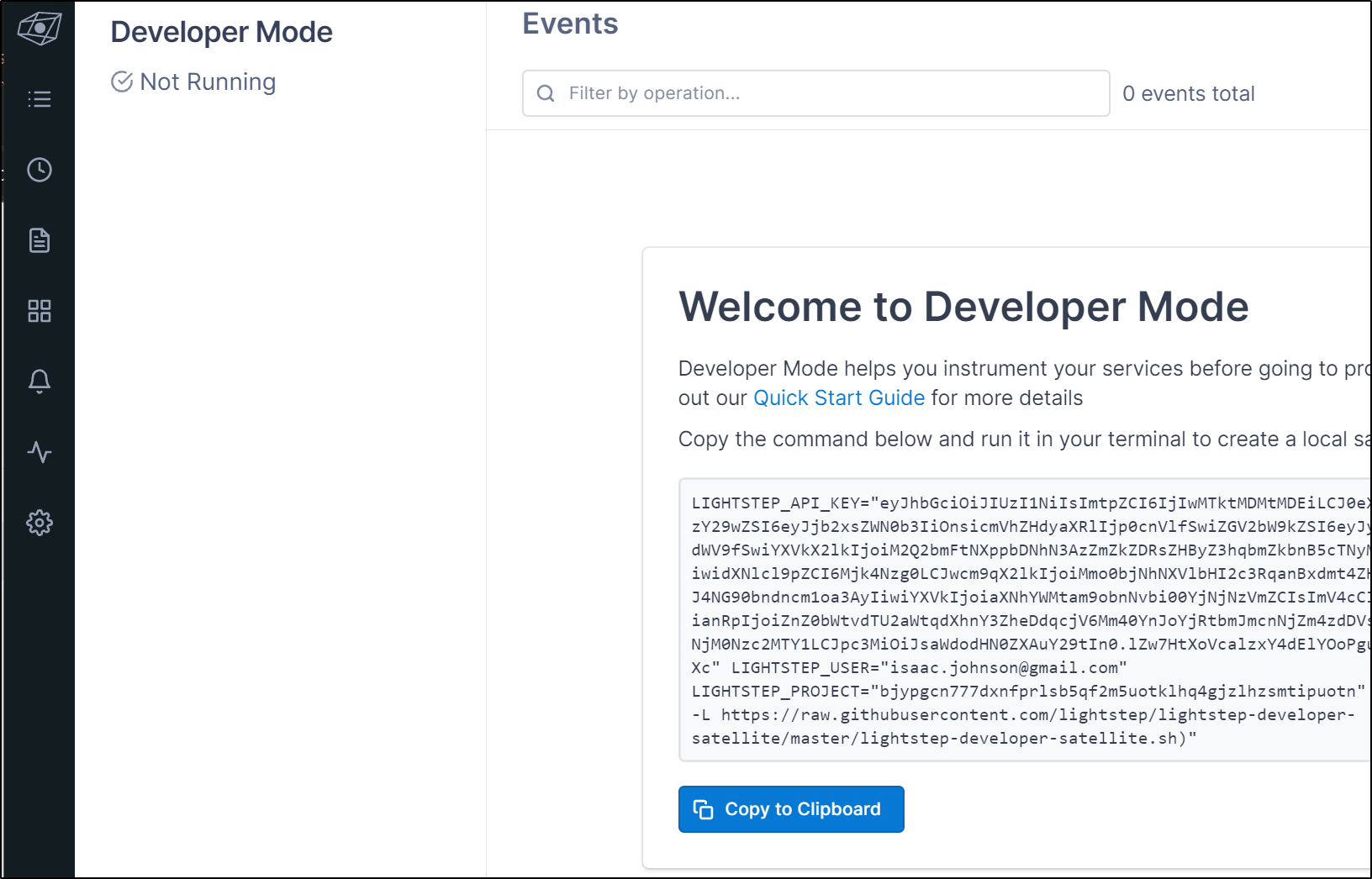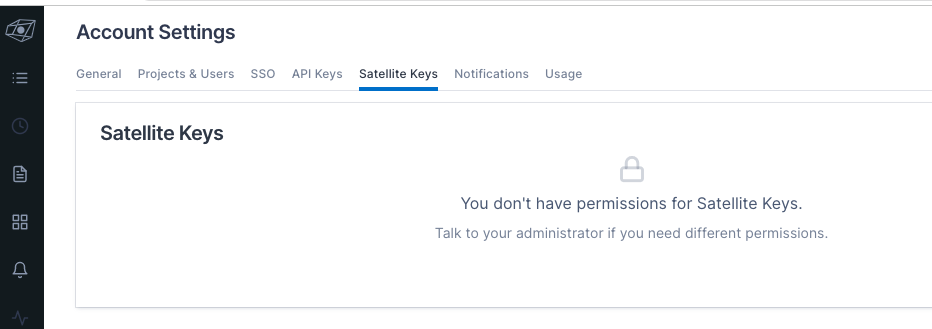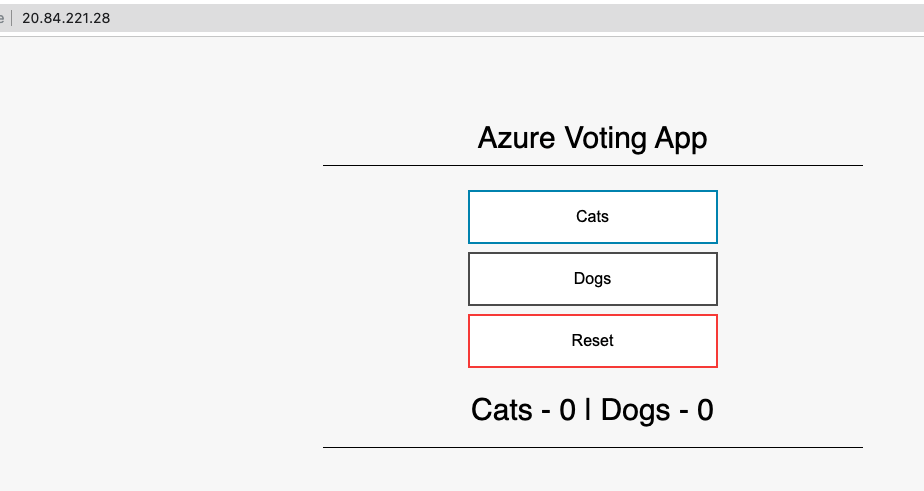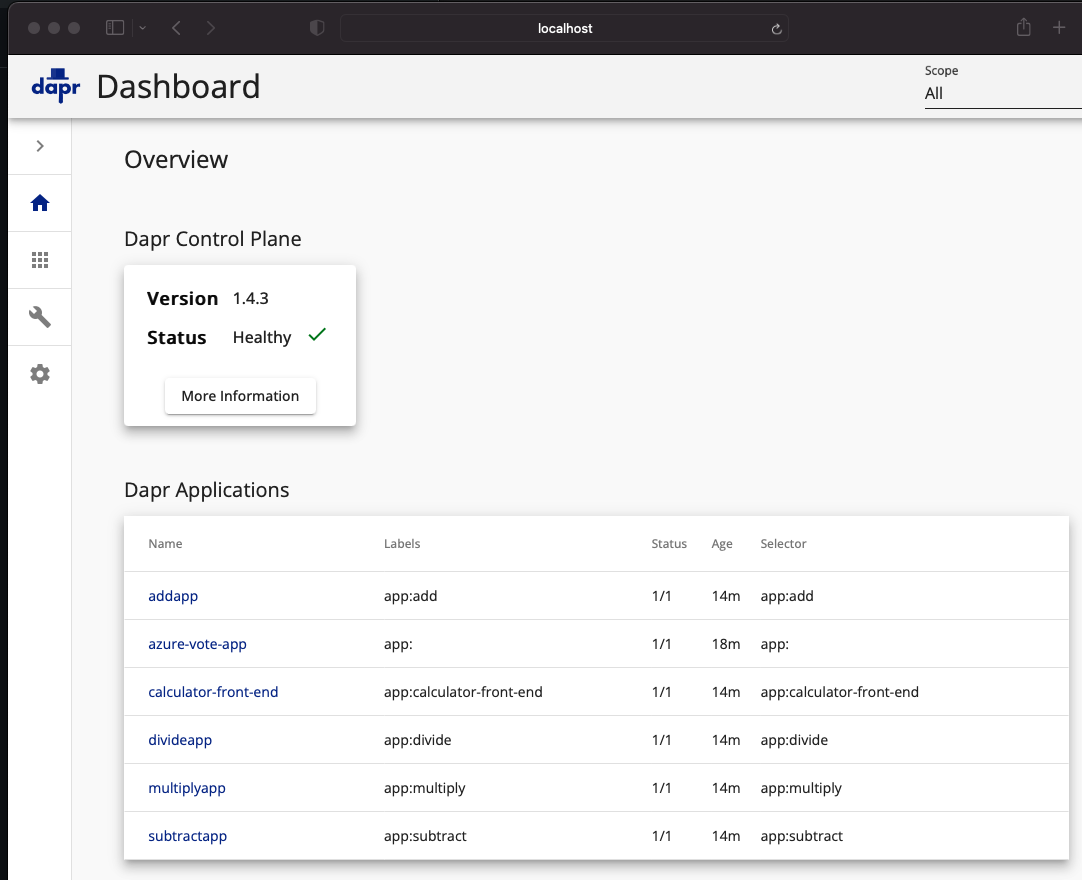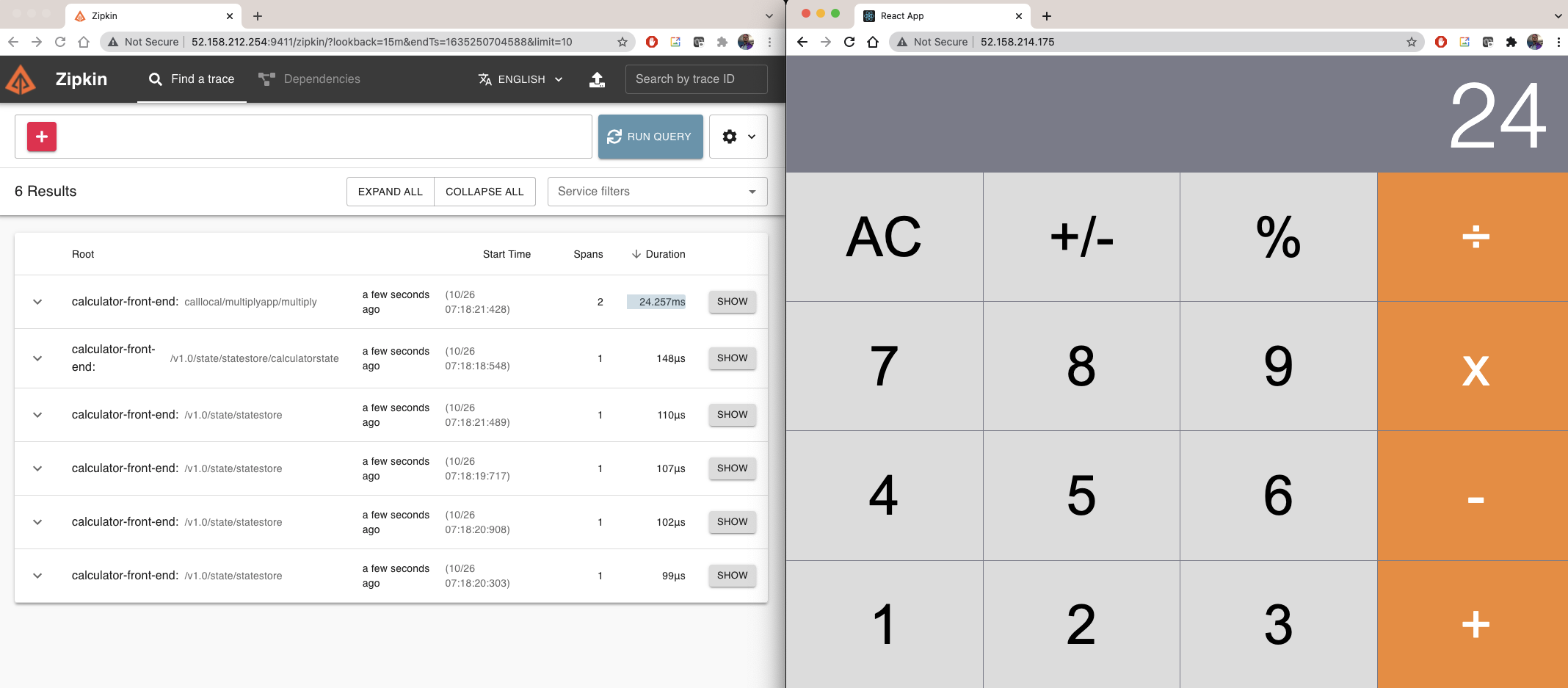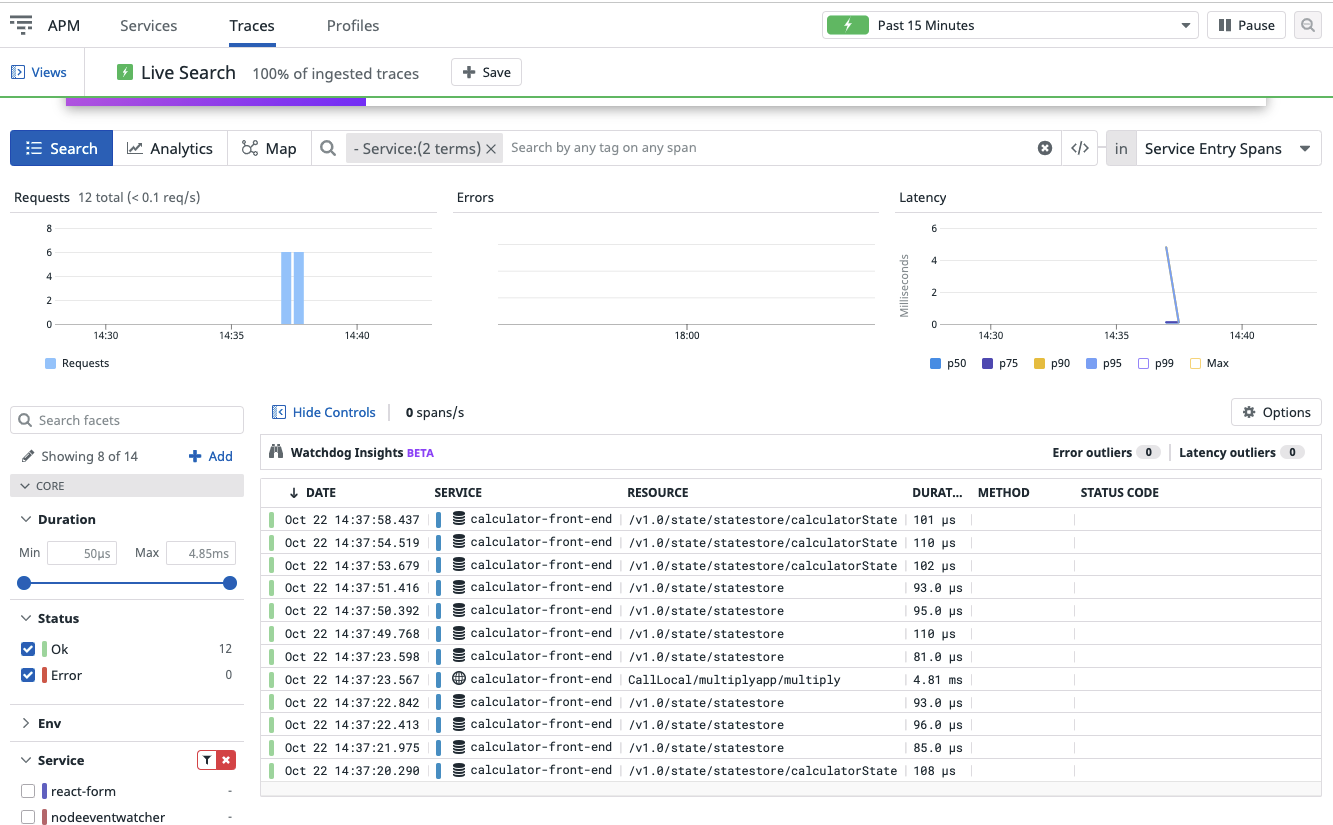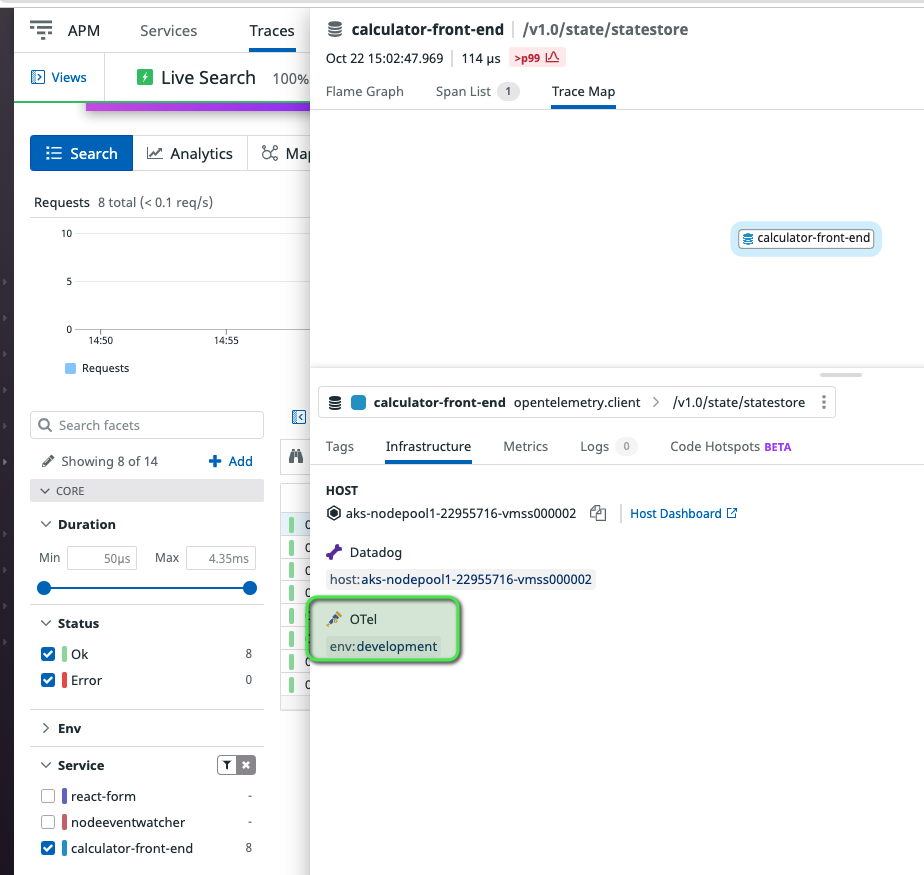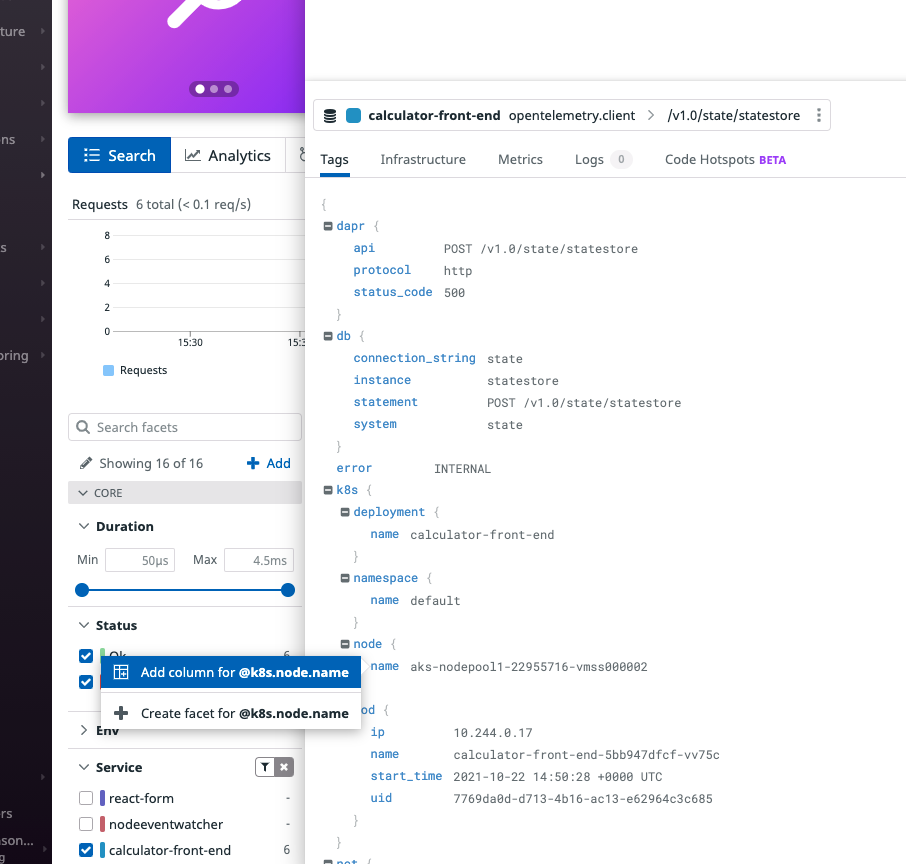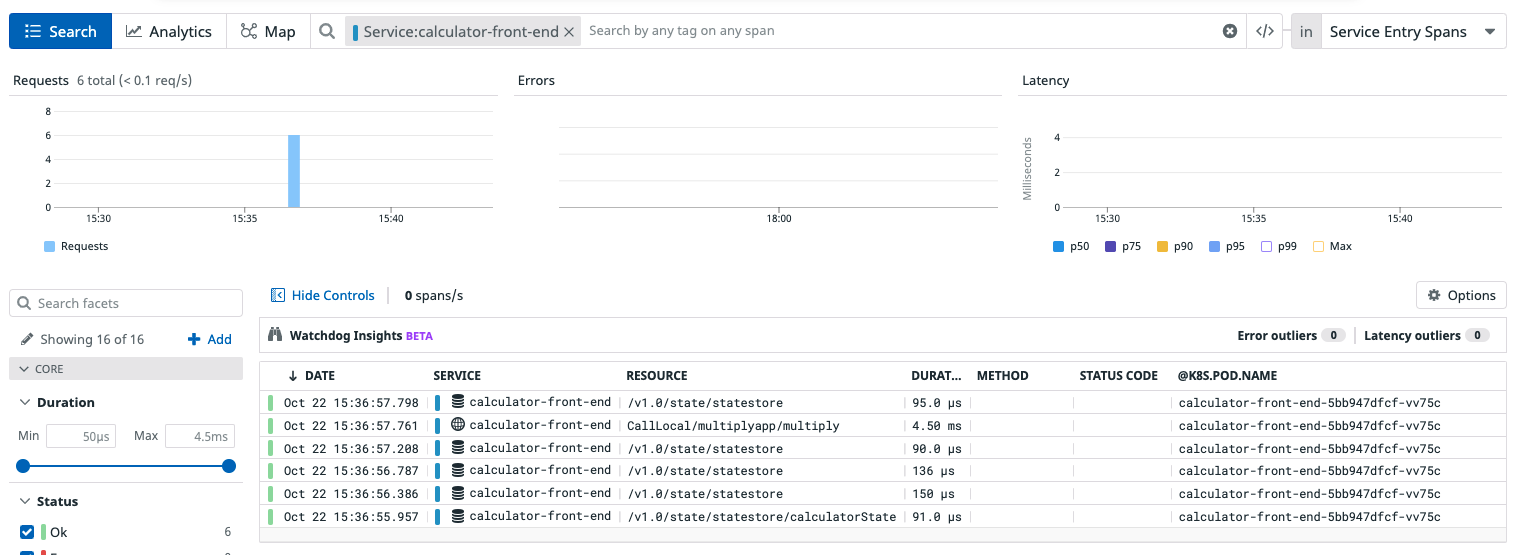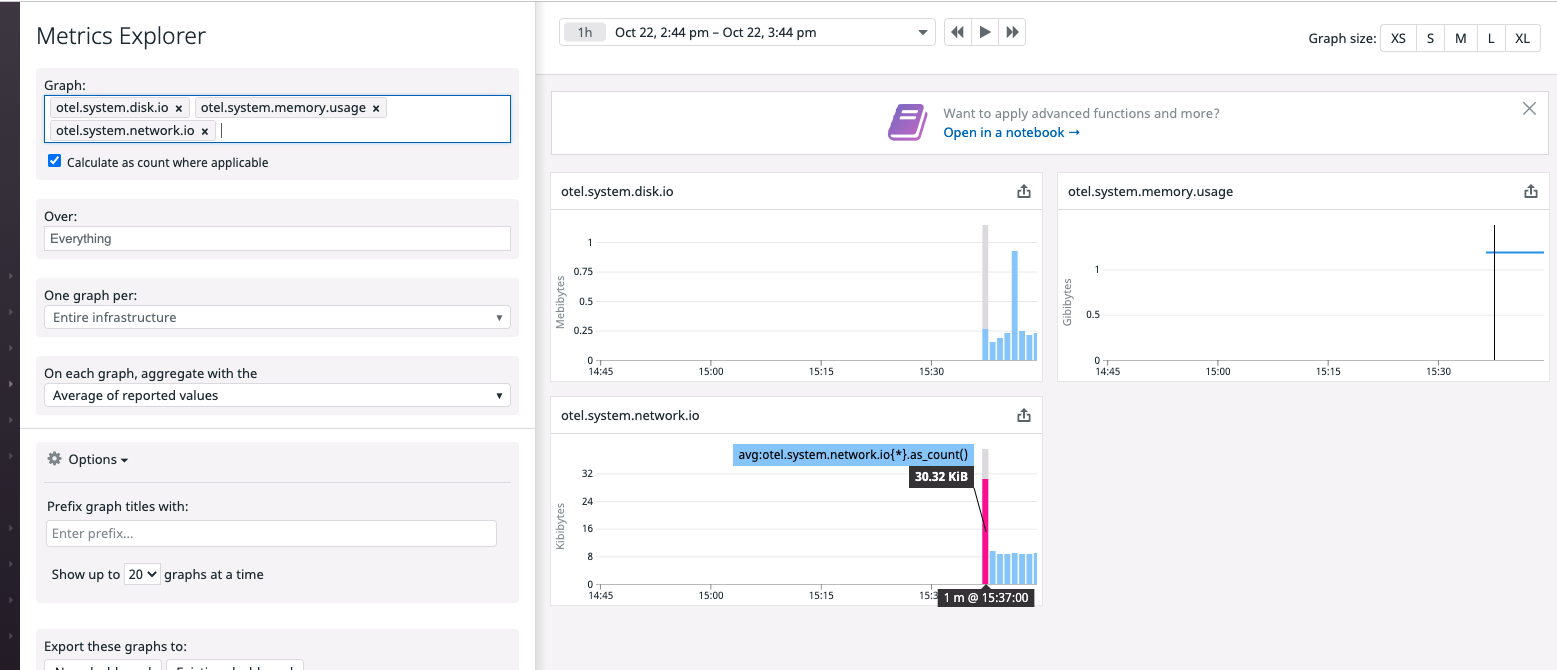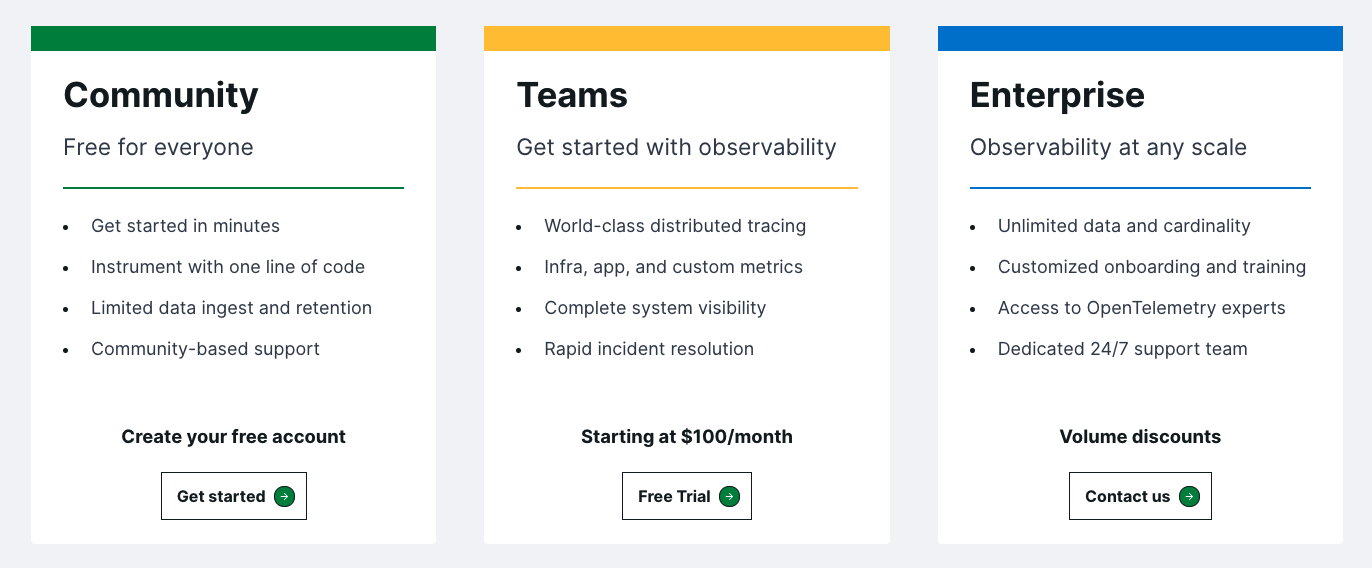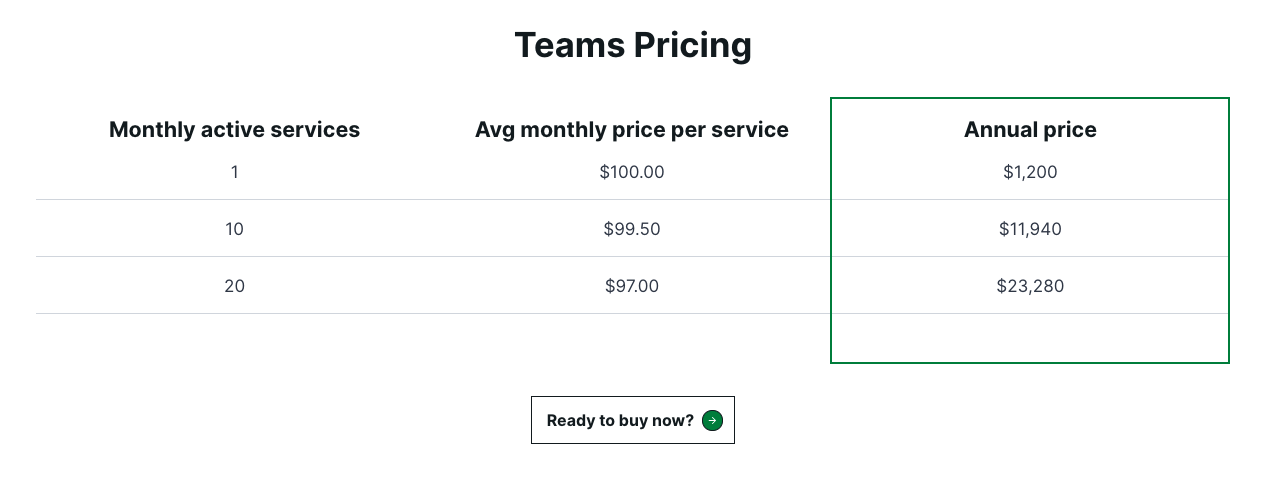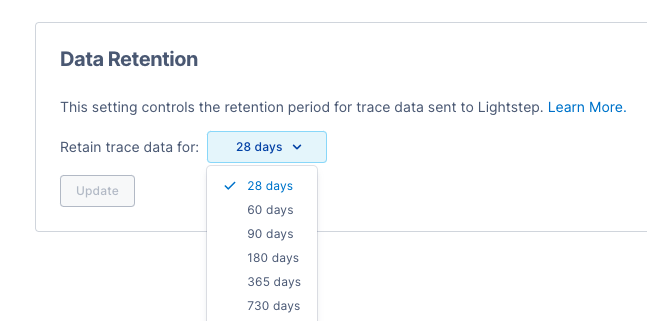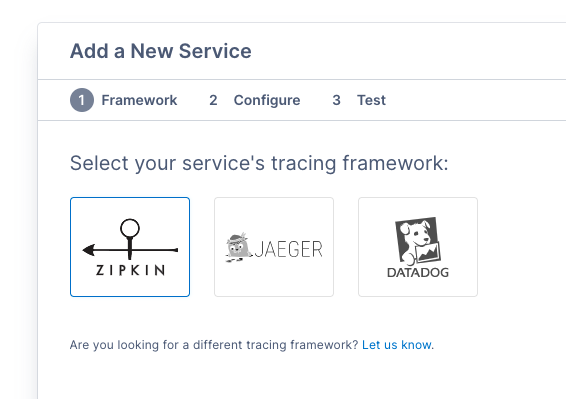Published: Oct 27, 2021 by Isaac Johnson
I’m a sucker for Schwag. I’ll admit I have a vast collection of Tees from various conferences and it’s really something I miss in the last years of quarantine - trade show halls and silly branded gadgets.
So when a sales rep from Lightstep offered me a Tee or gift card for listening to a pitch, I was game. I worked through their product as we see below and had some nice emails with their technical staff as I tried to get it to work with Dapr.
History
Lightstep was founded in 2015 by Benjamin Cronin (Operations), Ben Sigelman (CEO) and Daniel Spoonhower (“Spoons”: Chief Architect). The latter two came out of Google. Benjamin had been in a few startups prior including the iOS social App Matter. They are a relatively small Bay Area startup with about 100-250 employees. [ source: crunchbase, pagan ]
In a blog post announcing Lightstep in 2017, Ben talked about analyzing Lyft data and how Lightstep grew out of Dapper, Googles distributing tracing tool that came out of their research department in 2010.
Financials
After five rounds of series C funding, the last in December of 2018 ($41m), they brought in at total of $70 million. Then in 2021, they were acquired by Service Now (May-Aug 2021), finalizing just a few months ago. Prior to the acquisition they were valued around $100-500m. As of 2019 they were tracking $5-10m in revenue a year.
I want to add that when asked for comment, Ben Sigelman (CEO) informed me that while he couldn’t get into specifics, these numbers are well below the actuals. I had gotten them from public summary data in Crunchbase and Pagan Research so I’ll believe Mr. Sigelman on this. I had mentioned them mostly to give some relative size (as this is not a financial blog).
Setup
First, let’s signup for a developer account here
Next, we can setup a connection with the wizard:
We have OTel now so let’s use our Zipkin backend for that
or Jaeger
We’ll add Jaeger
make sure to expose only the ports you use in your deployment scenario!
docker run –rm
-p6831:6831/udp
-p6832:6832/udp
-p5778:5778/tcp
-p5775:5775/udp
jaegertracing/jaeger-agent:1.21
–reporter.grpc.host-port=
Getting started: Fresh code
Let’s use the dapr react form to test lightstep
nvm node 10
$ nvm install 10.24.1
Downloading and installing node v10.24.1...
Downloading https://nodejs.org/dist/v10.24.1/node-v10.24.1-darwin-x64.tar.xz...
################################################################################################################################################################################################################################## 100.0%
Computing checksum with shasum -a 256
Checksums matched!
Now using node v10.24.1 (npm v6.14.12)
$ nvm use 10.24.1
Now using node v10.24.1 (npm v6.14.12)
Since i just added nvm with brew install nvm i needed to also set some bash vars:
$ export NVM_DIR="$HOME/.nvm"
$ [ -s "/usr/local/opt/nvm/nvm.sh" ] && . "/usr/local/opt/nvm/nvm.sh"
$ [ -s "/usr/local/opt/nvm/etc/bash_completion.d/nvm" ] && . "/usr/local/opt/nvm/etc/bash_completion.d/nvm"
install the current dependencies:
$ npm install
npm WARN read-shrinkwrap This version of npm is compatible with lockfileVersion@1, but package-lock.json was generated for lockfileVersion@2. I'll try to do my best with it!
updated 311 packages and audited 311 packages in 7.616s
8 packages are looking for funding
run `npm fund` for details
found 3 moderate severity vulnerabilities
run `npm audit fix` to fix them, or `npm audit` for details
$ npm run build
> react-form@1.0.0 build /Users/johnisa/Workspaces/quickstarts/pub-sub/react-form
> npm run buildclient && npm install
> react-form@1.0.0 buildclient /Users/johnisa/Workspaces/quickstarts/pub-sub/react-form
> cd client && npm install && npm run build
npm WARN read-shrinkwrap This version of npm is compatible with lockfileVersion@1, but package-lock.json was generated for lockfileVersion@2. I'll try to do my best with it!
> fsevents@1.2.9 install /Users/johnisa/Workspaces/quickstarts/pub-sub/react-form/client/node_modules/fsevents
> node install
node-pre-gyp WARN Using request for node-pre-gyp https download
[fsevents] Success: "/Users/johnisa/Workspaces/quickstarts/pub-sub/react-form/client/node_modules/fsevents/lib/binding/Release/node-v64-darwin-x64/fse.node" is installed via remote
> core-js@2.6.9 postinstall /Users/johnisa/Workspaces/quickstarts/pub-sub/react-form/client/node_modules/babel-runtime/node_modules/core-js
> node scripts/postinstall || echo "ignore"
Thank you for using core-js ( https://github.com/zloirock/core-js ) for polyfilling JavaScript standard library!
The project needs your help! Please consider supporting of core-js on Open Collective or Patreon:
> https://opencollective.com/core-js
> https://www.patreon.com/zloirock
Also, the author of core-js ( https://github.com/zloirock ) is looking for a good job -)
> core-js@3.1.4 postinstall /Users/johnisa/Workspaces/quickstarts/pub-sub/react-form/client/node_modules/core-js
> node scripts/postinstall || echo "ignore"
Thank you for using core-js ( https://github.com/zloirock/core-js ) for polyfilling JavaScript standard library!
The project needs your help! Please consider supporting of core-js on Open Collective or Patreon:
> https://opencollective.com/core-js
> https://www.patreon.com/zloirock
Also, the author of core-js ( https://github.com/zloirock ) is looking for a good job -)
added 68 packages from 33 contributors, updated 1385 packages and audited 1453 packages in 28.862s
found 387 vulnerabilities (150 moderate, 234 high, 3 critical)
run `npm audit fix` to fix them, or `npm audit` for details
> client@0.1.0 build /Users/johnisa/Workspaces/quickstarts/pub-sub/react-form/client
> react-scripts build
Creating an optimized production build...
Browserslist: caniuse-lite is outdated. Please run next command `yarn upgrade`
Compiled with warnings.
./src/Nav.js
Line 11: The href attribute requires a valid value to be accessible. Provide a valid, navigable address as the href value. If you cannot provide a valid href, but still need the element to resemble a link, use a button and change it with appropriate styles. Learn more: https://github.com/evcohen/eslint-plugin-jsx-a11y/blob/master/docs/rules/anchor-is-valid.md jsx-a11y/anchor-is-valid
Search for the keywords to learn more about each warning.
To ignore, add // eslint-disable-next-line to the line before.
File sizes after gzip:
38.96 KB build/static/js/2.6c6c5cfd.chunk.js
1.09 KB build/static/js/main.897b49e4.chunk.js
772 B build/static/js/runtime~main.ea92a0de.js
518 B build/static/css/main.45a95b41.chunk.css
The project was built assuming it is hosted at the server root.
You can control this with the homepage field in your package.json.
For example, add this to build it for GitHub Pages:
"homepage" : "http://myname.github.io/myapp",
The build folder is ready to be deployed.
You may serve it with a static server:
yarn global add serve
serve -s build
Find out more about deployment here:
https://bit.ly/CRA-deploy
audited 311 packages in 1.513s
8 packages are looking for funding
run `npm fund` for details
found 3 moderate severity vulnerabilities
run `npm audit fix` to fix them, or `npm audit` for details
Install the lightstep otel package:
$ npm install lightstep-opentelemetry-launcher-node --save
npm WARN deprecated @types/bson@4.2.0: This is a stub types definition. bson provides its own type definitions, so you do not need this installed.
npm WARN deprecated @types/graphql@14.5.0: This is a stub types definition. graphql provides its own type definitions, so you do not need this installed.
npm WARN deprecated @opentelemetry/node@0.24.0: Package renamed to @opentelemetry/sdk-trace-node
npm WARN deprecated @opentelemetry/metrics@0.24.0: Package renamed to @opentelemetry/sdk-metrics-base
npm WARN deprecated @opentelemetry/tracing@0.24.0: Package renamed to @opentelemetry/sdk-trace-base
added 129 packages, and audited 312 packages in 8s
8 packages are looking for funding
run `npm fund` for details
7 moderate severity vulnerabilities
To address issues that do not require attention, run:
npm audit fix
To address all issues (including breaking changes), run:
npm audit fix --force
Run `npm audit` for details.
We will wrap the invokation in index.js with lightstep:
$ git diff react-form/client/src/index.js
diff --git a/pub-sub/react-form/client/src/index.js b/pub-sub/react-form/client/src/index.js
index 62059bd..fe3e4fe 100644
--- a/pub-sub/react-form/client/src/index.js
+++ b/pub-sub/react-form/client/src/index.js
@@ -9,9 +9,23 @@ import './index.css';
import App from './App';
import * as serviceWorker from './serviceWorker';
-ReactDOM.render(<App />, document.getElementById('root'));
+const { lightstep, opentelemetry } =
+ require("lightstep-opentelemetry-launcher-node");
+
+// Set access token. If you prefer, set the LS_ACCESS_TOKEN environment variable instead, and remove accessToken here.
+const accessToken = 'Tm90IG15IHJlYWwga2V5LCBidXQgZ2xhZCB5b3UgY2hlY2tlZAo=';
-// If you want your app to work offline and load faster, you can change
-// unregister() to register() below. Note this comes with some pitfalls.
-// Learn more about service workers: https://bit.ly/CRA-PWA
-serviceWorker.unregister();
+const sdk = lightstep.configureOpenTelemetry({
+ accessToken,
+ serviceName: 'react-form',
+});
+
+sdk.start().then(() => {
+ ReactDOM.render(<App />, document.getElementById('root'));
+
+ // If you want your app to work offline and load faster, you can change
+ // unregister() to register() below. Note this comes with some pitfalls.
+ // Learn more about service workers: https://bit.ly/CRA-PWA
+ serviceWorker.unregister();
+
+});
\ No newline at end of file
I tried updating the form:
// ------------------------------------------------------------
// Copyright (c) Microsoft Corporation.
// Licensed under the MIT License.
// ------------------------------------------------------------
const { lightstep, opentelemetry } =
require("lightstep-opentelemetry-launcher-node");
// Set access token. If you prefer, set the LS_ACCESS_TOKEN environment variable instead, and remove accessToken here.
const accessToken = 'Tm90IG15IHJlYWwga2V5LCBidXQgZ2xhZCB5b3UgY2hlY2tlZAo=';
const sdk = lightstep.configureOpenTelemetry({
accessToken,
serviceName: 'react-form',
});
sdk.start().then(() => {
import React from 'react';
import ReactDOM from 'react-dom';
import './index.css';
import App from './App';
import * as serviceWorker from './serviceWorker';
ReactDOM.render(<App />, document.getElementById('root'));
// If you want your app to work offline and load faster, you can change
// unregister() to register() below. Note this comes with some pitfalls.
// Learn more about service workers: https://bit.ly/CRA-PWA
serviceWorker.unregister();
});
But even then, no data showed up in Lightstep.
I’m going to assume this is because the Dapr React app is pretty old (Node 8 based). Despite my efforts, it just wasn’t going to work.
Fresh Express JS
I moved onto just creating a fresh Node 14 Express app.
$ nvm install 14.18.1
Downloading and installing node v14.18.1...
Downloading https://nodejs.org/dist/v14.18.1/node-v14.18.1-darwin-x64.tar.xz...
################################################################################################################################################################################################################################## 100.0%
Computing checksum with shasum -a 256
Checksums matched!
Now using node v14.18.1 (npm v6.14.15)
Do an npm init in the folder:
$ npm init
This utility will walk you through creating a package.json file.
It only covers the most common items, and tries to guess sensible defaults.
See `npm help init` for definitive documentation on these fields
and exactly what they do.
Use `npm install <pkg>` afterwards to install a package and
save it as a dependency in the package.json file.
Press ^C at any time to quit.
package name: (lightstep)
version: (1.0.0)
description: testing lighstep with express
entry point: (index.js)
test command:
git repository:
keywords: express, lightstep
author: Isaac Johnson
license: (ISC) MIT
About to write to /Users/johnisa/Workspaces/lightstep/package.json:
{
"name": "lightstep",
"version": "1.0.0",
"description": "testing lighstep with express",
"main": "index.js",
"scripts": {
"test": "echo \"Error: no test specified\" && exit 1"
},
"keywords": [
"express",
"lightstep"
],
"author": "Isaac Johnson",
"license": "MIT"
}
Is this OK? (yes) yes
Then install express that matches Node 14
$ npm install --save express@4.17.1
npm notice created a lockfile as package-lock.json. You should commit this file.
npm WARN lightstep@1.0.0 No repository field.
+ express@4.17.1
added 50 packages from 37 contributors and audited 50 packages in 2.076s
found 0 vulnerabilities
add the Otel client for lightstep:
npm install lightstep-opentelemetry-launcher-node --save
npm WARN deprecated @types/graphql@14.5.0: This is a stub types definition. graphql provides its own type definitions, so you do not need this installed.
npm WARN deprecated @opentelemetry/node@0.24.0: Package renamed to @opentelemetry/sdk-trace-node
npm WARN deprecated @types/bson@4.2.0: This is a stub types definition. bson provides its own type definitions, so you do not need this installed.
npm WARN deprecated @opentelemetry/tracing@0.24.0: Package renamed to @opentelemetry/sdk-trace-base
npm WARN deprecated @opentelemetry/metrics@0.24.0: Package renamed to @opentelemetry/sdk-metrics-base
npm WARN lightstep@1.0.0 No repository field.
+ lightstep-opentelemetry-launcher-node@0.24.0
added 130 packages from 212 contributors and audited 180 packages in 12.296s
6 packages are looking for funding
run `npm fund` for details
found 0 vulnerabilities
I added a “run” step (probably could name it better) to package.json. This made the file, in the end, look as such:
$ cat package.json
{
"name": "lightstep",
"version": "1.0.0",
"description": "testing lighstep with express",
"main": "index.js",
"scripts": {
"run": "node index.js",
"test": "echo \"Error: no test specified\" && exit 1"
},
"keywords": [
"express",
"lightstep"
],
"author": "Isaac Johnson",
"license": "MIT",
"dependencies": {
"express": "^4.17.1",
"lightstep-opentelemetry-launcher-node": "^0.24.0"
}
}
And my hello-world Express index.js:
$ cat index.js
const { lightstep, opentelemetry } =
require("lightstep-opentelemetry-launcher-node");
// Set access token. If you prefer, set the LS_ACCESS_TOKEN environment variable instead, and remove accessToken here.
const accessToken = 'Tm90IG15IHJlYWwga2V5LCBidXQgZ2xhZCB5b3UgY2hlY2tlZAo=';
const sdk = lightstep.configureOpenTelemetry({
accessToken,
serviceName: 'react-form',
});
sdk.start().then(() => {
const express = require('express')
const app = express()
const port = 3000
app.get('/', (req, res) => {
res.send('Hello World!')
})
app.listen(port, () => {
console.log(`Example app listening at http://localhost:${port}`)
})
});
Then we can run:
$ npm run run
> lightstep@1.0.0 run /Users/johnisa/Workspaces/lightstep
> node index.js
Example app listening at http://localhost:3000
Once i hit the page a few times, i could finally see some data in Lightstep:
We can click a specific trace to get details:
If we leave the window at an hour, we don’t see much
but narrowing to 15m and hitting the endpoint a bit, we see more information
adding in some weather APIs… we add request
$ npm install request --save
npm WARN deprecated request@2.88.2: request has been deprecated, see https://github.com/request/request/issues/3142
npm WARN deprecated har-validator@5.1.5: this library is no longer supported
npm WARN deprecated uuid@3.4.0: Please upgrade to version 7 or higher. Older versions may use Math.random() in certain circumstances, which is known to be problematic. See https://v8.dev/blog/math-random for details.
npm WARN lightstep@1.0.0 No repository field.
+ request@2.88.2
added 42 packages from 50 contributors and audited 222 packages in 3.622s
7 packages are looking for funding
run `npm fund` for details
found 0 vulnerabilities
We need an API key from WeatherAPI: https://home.openweathermap.org/api_keys
update index.js:
const { lightstep, opentelemetry } =
require("lightstep-opentelemetry-launcher-node");
// Set access token. If you prefer, set the LS_ACCESS_TOKEN environment variable instead, and remove accessToken here.
const accessToken = 'Tm90IG15IHJlYWwga2V5LCBidXQgZ2xhZCB5b3UgY2hlY2tlZAo=';
const sdk = lightstep.configureOpenTelemetry({
accessToken,
serviceName: 'react-form',
});
sdk.start().then(() => {
const express = require('express')
const request = require('request');
const app = express()
const port = 3000
app.get('/', (req, res) => {
let apiKey = 'cmFpbiByYWluIGdvIGF3YXkK';
let city = 'minneapolis';
let url = `http://api.openweathermap.org/data/2.5/weather?q=${city}&appid=${apiKey}`
request(url, function (err, response, body) {
if(err){
console.log('error:', error);
} else {
console.log('body:', body);
}
});
res.send('Hello World!')
})
app.listen(port, () => {
console.log(`Example app listening at http://localhost:${port}`)
})
});
Run for a bit:
npm run run
> lightstep@1.0.0 run /Users/johnisa/Workspaces/lightstep
> node index.js
Example app listening at http://localhost:3000
body: {"coord":{"lon":-93.2638,"lat":44.98},"weather":[{"id":804,"main":"Clouds","description":"overcast clouds","icon":"04d"}],"base":"stations","main":{"temp":284.9,"feels_like":284.53,"temp_min":282.77,"temp_max":286.82,"pressure":1010,"humidity":92},"visibility":10000,"wind":{"speed":0.45,"deg":103,"gust":2.68},"clouds":{"all":90},"dt":1634764151,"sys":{"type":2,"id":2008025,"country":"US","sunrise":1634733328,"sunset":1634771986},"timezone":-18000,"id":5037649,"name":"Minneapolis","cod":200}
body: {"coord":{"lon":-93.2638,"lat":44.98},"weather":[{"id":701,"main":"Mist","description":"mist","icon":"50d"}],"base":"stations","main":{"temp":284.89,"feels_like":284.55,"temp_min":282.62,"temp_max":286.82,"pressure":1010,"humidity":93},"visibility":6437,"wind":{"speed":0.89,"deg":44,"gust":4.02},"clouds":{"all":90},"dt":1634763739,"sys":{"type":2,"id":2008025,"country":"US","sunrise":1634733328,"sunset":1634771986},"timezone":-18000,"id":5037649,"name":"Minneapolis","cod":200}
body: {"coord":{"lon":-93.2638,"lat":44.98},"weather":[{"id":804,"main":"Clouds","description":"overcast clouds","icon":"04d"}],"base":"stations","main":{"temp":284.91,"feels_like":284.57,"temp_min":282.77,"temp_max":286.82,"pressure":1010,"humidity":93},"visibility":10000,"wind":{"speed":0.89,"deg":44,"gust":4.02},"clouds":{"all":90},"dt":1634763842,"sys":{"type":2,"id":2008025,"country":"US","sunrise":1634733328,"sunset":1634771986},"timezone":-18000,"id":5037649,"name":"Minneapolis","cod":200}
body: {"coord":{"lon":-93.2638,"lat":44.98},"weather":[{"id":804,"main":"Clouds","description":"overcast clouds","icon":"04d"}],"base":"stations","main":{"temp":284.91,"feels_like":284.57,"temp_min":282.77,"temp_max":286.82,"pressure":1010,"humidity":93},"visibility":10000,"wind":{"speed":0.89,"deg":44,"gust":4.02},"clouds":{"all":90},"dt":1634763842,"sys":{"type":2,"id":2008025,"country":"US","sunrise":1634733328,"sunset":1634771986},"timezone":-18000,"id":5037649,"name":"Minneapolis","cod":200}
body: {"coord":{"lon":-93.2638,"lat":44.98},"weather":[{"id":804,"main":"Clouds","description":"overcast clouds","icon":"04d"}],"base":"stations","main":{"temp":284.9,"feels_like":284.53,"temp_min":282.77,"temp_max":286.82,"pressure":1010,"humidity":92},"visibility":10000,"wind":{"speed":0.45,"deg":103,"gust":2.68},"clouds":{"all":90},"dt":1634764151,"sys":{"type":2,"id":2008025,"country":"US","sunrise":1634733328,"sunset":1634771986},"timezone":-18000,"id":5037649,"name":"Minneapolis","cod":200}
body: {"coord":{"lon":-93.2638,"lat":44.98},"weather":[{"id":701,"main":"Mist","description":"mist","icon":"50d"}],"base":"stations","main":{"temp":284.89,"feels_like":284.55,"temp_min":282.62,"temp_max":286.82,"pressure":1010,"humidity":93},"visibility":6437,"wind":{"speed":0.89,"deg":44,"gust":4.02},"clouds":{"all":90},"dt":1634763739,"sys":{"type":2,"id":2008025,"country":"US","sunrise":1634733328,"sunset":1634771986},"timezone":-18000,"id":5037649,"name":"Minneapolis","cod":200}
We can see that long query reflected in the traces:
Looking for errors
We can search for errors, such as HTTP status:
Clicking on one of them, shows the trace that got us there:
and we can see the endpoint that got us that error (/asdf)
Streams
we can create a Stream that watches for status codes outside a range.
From there we can create an alert from the stream.
I’ll take a quick moment to add a Notification endpoint for Slack
we can do a quick test
we can see the result
Then you can create the alert there:
And we can see the results once created:
You supposidly can create an alert on a metric. The docs show some examples but i was not able to select the http.status_code.
We can watch and see alerts
however i did not see alerts actually show up in my slack based on latency.
However, i could query on an Alert:
and get results
and lastly we see the error in slack now:
Presently our targets can be slack, pagerduty, bigpanda or a generic webhook (which would cover most other things)
and after a while we can see the alerts clear:
Dashboards
We can create a dashboard, however all that means is a single graph per stream
Services
We can see the services and create streams from them:
Satellites
One of the unique features of Lightstep is “Satellite Mode”. By launching a Lightstep Satellite, a developer can instrument her code without needing to deploy it into a managed cluster.
In developer mode, we see the invokation steps:
I could only see that in “Developer Mode”. In both a Trial of the Teams plan and community plan, the Satellite Keys area in my settings was locked out. But again, i could see it in this Developer Mode screen.
$ LIGHTSTEP_API_KEY="eyJhasdfasdfasdfasdfasdfasdfasdfasdfE" LIGHTSTEP_USER="isaac.johnson@gmail.com" LIGHTSTEP_PROJECT="bjypgcn777dxnfprlsb5qf2m5uotklhq4gjzlhzsmtipuotn" bash -c "$(curl -L https://raw.githubusercontent.com/lightstep/lightstep-developer-satellite/master/lightstep-developer-satellite.sh)"
% Total % Received % Xferd Average Speed Time Time Time Current
Dload Upload Total Spent Left Speed
100 6436 100 6436 0 0 26377 0 --:--:-- --:--:-- --:--:-- 26377
latest: Pulling from lightstep/developer-satellite
34667c7e4631: Pull complete
d18d76a881a4: Pull complete
119c7358fbfc: Pull complete
2aaf13f3eff0: Pull complete
96ce2a6ea64e: Pull complete
a4afab25e2ea: Pull complete
21995bcfa9b5: Pull complete
Digest: sha256:a7ca76ad250ca4954f4b05b3f3018b9cb78ab0bf17128c1dfb1cdcb080ea678e
Status: Downloaded newer image for lightstep/developer-satellite:latest
docker.io/lightstep/developer-satellite:latest
Starting the LightStep Developer Satellite on port 8360.
To access this satellite from inside a Docker container, configure the
Tracer's "collector_host" to 172.17.0.1.
This process will be restarted by the Docker daemon automatically, including
when this machine reboots. To stop this process, run:
bash -c "$(curl -L https://raw.githubusercontent.com/lightstep/lightstep-developer-satellite/master/stop-developer-satellite.sh)"
30aasdfasdfasdfasdfasdfasdfasdf60f
I tried to change the code to use the ls-trace module:
/*
const { lightstep, opentelemetry } =
require("lightstep-opentelemetry-launcher-node");
// Set access token. If you prefer, set the LS_ACCESS_TOKEN environment variable instead, and remove accessToken here.
const accessToken = 'AbasdfasfasdfasdfasdfasdfasdfasdfasdfasdfasdfasdfasdfasdfsadfasdfasdfasdfT8';
const sdk = lightstep.configureOpenTelemetry({
accessToken,
serviceName: 'react-form',
});
sdk.start().then(() => {
*/
const tracer = require('ls-trace').init(
{
experimental: {
b3: true
}
}
)
but saw no data.
I tried both settings on the Env var:
705 export DD_TRACE_GLOBAL_TAGS="lightstep.service_name:expressjs,lightstep.access_token:AbBasdfasdfasfdasdfasdfasdfasdfasdfasdfsafT8"
717 export DD_TRACE_AGENT_URL=http://localhost:8360
703 export DD_TRACE_AGENT_URL=https://172.17.0.1:8360
The docker logs on the container (satellite) seemed fine:
[selftest.go:31 I1021 13:05:46.719389] Satellite Self-Test Results...
API Key authorized for:
1 Organizations [isaac-johnson-4b3c75fd]
1 Projects [bjypgcn777dxnfprlsb5qf2m5uotklhq4gjzlhzsmtipuotn]
1 Access Tokens [FJrBbKtT...]
0 Disabled Access Tokens []
Tests:
Connected to api-grpc.lightstep.com:8043: success
Require unique port numbers: success
Self-Test Status: SUCCESS
[exported.go:150 I1021 13:05:46.720486] Log continues at <forwarding_logger>
And docker ps suggested it was monitoring the right port:
$ docker ps | head -n2
CONTAINER ID IMAGE COMMAND CREATED STATUS PORTS NAMES
30ab361daa2b lightstep/developer-satellite:latest "/bin/sh -c 'if [ -z…" 17 minutes ago Up 17 minutes 80/tcp, 443/tcp, 0.0.0.0:8360-8361->8360-8361/tcp lightstep_developer_satellite
I checked the docs a few times, but don’t see what i was doing in err.
And even after i checked the Satellite Keys area and it was empty (under account settings for Dev and Prod):
AKS
Since all of this is being done on a fresh mac or in my older existing kubernetes cluster, Let’s do a fresh run in AKS
$ az account set --subscription "Visual Studio Enterprise Subscription" && az group create -n mydemoaksrg --location centralus && az aks create -n basicclusteridj -g mydemoaksrg && az aks get-credentials -n basicclusteridj -g mydemoaksrg --admin && dapr init -k
{
"id": "/subscriptions/
...
Making the jump to hyperspace...
ℹ️ Note: To install Dapr using Helm, see here: https://docs.dapr.io/getting-started/install-dapr-kubernetes/#install-with-helm-advanced
✅ Deploying the Dapr control plane to your cluster...
✅ Success! Dapr has been installed to namespace dapr-system. To verify, run `dapr status -k' in your terminal. To get started, go here: https://aka.ms/dapr-getting-started
Now let’s check Dapr status
$ dapr status -k
NAME NAMESPACE HEALTHY STATUS REPLICAS VERSION AGE CREATED
dapr-dashboard dapr-system False Waiting (ContainerCreating) 1 0.8.0 11s 2021-10-22 06:57.50
dapr-sentry dapr-system True Running 1 1.4.3 11s 2021-10-22 06:57.50
dapr-sidecar-injector dapr-system False Running 1 1.4.3 11s 2021-10-22 06:57.50
dapr-operator dapr-system True Running 1 1.4.3 11s 2021-10-22 06:57.50
dapr-placement-server dapr-system False Running 1 1.4.3 11s 2021-10-22 06:57.50
Let’s grab the Azure Vote app. We can follow the instructions here
$ git clone https://github.com/Azure-Samples/azure-voting-app-redis.git
Cloning into 'azure-voting-app-redis'...
remote: Enumerating objects: 174, done.
remote: Total 174 (delta 0), reused 0 (delta 0), pack-reused 174
Receiving objects: 100% (174/174), 37.21 KiB | 604.00 KiB/s, done.
Resolving deltas: 100% (78/78), done.
$ ls
azure-voting-app-redis
$ cd azure-voting-app-redis/
$ ls
LICENSE README.md azure-vote azure-vote-all-in-one-redis.yaml docker-compose.yaml jenkins-tutorial
$ cd azure-vote
and before i forget, we need an ACR to host a container
$ az acr create -g mydemoaksrg -n idjbasicacr1 --sku Basic
Resource provider 'Microsoft.ContainerRegistry' used by this operation is not registered. We are registering for you.
Registration succeeded.
{
"adminUserEnabled": false,
"anonymousPullEnabled": false,
"creationDate": "2021-10-22T12:03:51.507625+00:00",
...
"zoneRedundancy": "Disabled"
}
$ az aks update -n basicclusteridj -g mydemoaksrg --attach-acr idjbasicacr1
AAD role propagation done[############################################] 100.0000%{
"aadProfile": null,
"addonProfiles": null,
"agentPoolProfiles": [
We will build and push the vote app;
$ az acr build --image azure-vote-front:v1 --registry idjbasicacr1 --file Dockerfile .
Packing source code into tar to upload...
Uploading archived source code from '/var/folders/xd/5bjmj9_s1hl16_b9k0fnv525nmnf6k/T/build_archive_9be058fc5ae74f19af6d45203334bcb3.tar.gz'...
Sending context (3.133 KiB) to registry: idjbasicacr1...
Queued a build with ID: cj1
Waiting for an agent...
2021/10/22 12:15:48 Downloading source code...
2021/10/22 12:15:49 Finished downloading source code
2021/10/22 12:15:50 Using acb_vol_91c3e103-6e4c-483a-80d6-c79420fff9b7 as the home volume
2021/10/22 12:15:50 Setting up Docker configuration...
2021/10/22 12:15:50 Successfully set up Docker configuration
2021/10/22 12:15:50 Logging in to registry: idjbasicacr1.azurecr.io
2021/10/22 12:15:51 Successfully logged into idjbasicacr1.azurecr.io
2021/10/22 12:15:51 Executing step ID: build. Timeout(sec): 28800, Working directory: '', Network: ''
2021/10/22 12:15:51 Scanning for dependencies...
2021/10/22 12:15:52 Successfully scanned dependencies
2021/10/22 12:15:52 Launching container with name: build
Sending build context to Docker daemon 17.41kB
Step 1/3 : FROM tiangolo/uwsgi-nginx-flask:python3.6
python3.6: Pulling from tiangolo/uwsgi-nginx-flask
5e7b6b7bd506: Pulling fs layer
fd67d668d691: Pulling fs layer
1ae016bc2687: Pulling fs layer
0b0af05a4d86: Pulling fs layer
ca4689f0588c: Pulling fs layer
981ebf72add4: Pulling fs layer
94ed2ee96337: Pulling fs layer
e49e07f12c65: Pulling fs layer
0f08bac7320e: Pulling fs layer
81a0d7f51d3d: Pulling fs layer
45b3ee0e1290: Pulling fs layer
ce9e70713770: Pulling fs layer
e882f9f0a345: Pulling fs layer
cd67f5e18994: Pulling fs layer
fac5e97674c4: Pulling fs layer
8e8b6cae656c: Pulling fs layer
d6aedd13aa3a: Pulling fs layer
8af53450c113: Pulling fs layer
f4085b389d61: Pulling fs layer
bd0175ca87a3: Pulling fs layer
8409f1b445a6: Pulling fs layer
3e06db044205: Pulling fs layer
bc4fdf3baacd: Pulling fs layer
a34149461b9f: Pulling fs layer
52b8d7e75039: Pulling fs layer
829e42bb45c7: Pulling fs layer
b6d7f7b867d3: Pulling fs layer
3a20ff797468: Pulling fs layer
aab9399febeb: Pulling fs layer
ad39310f24a7: Pulling fs layer
8e8b6cae656c: Waiting
d6aedd13aa3a: Waiting
8af53450c113: Waiting
f4085b389d61: Waiting
bd0175ca87a3: Waiting
8409f1b445a6: Waiting
0b0af05a4d86: Waiting
ca4689f0588c: Waiting
981ebf72add4: Waiting
94ed2ee96337: Waiting
3e06db044205: Waiting
bc4fdf3baacd: Waiting
e49e07f12c65: Waiting
0f08bac7320e: Waiting
a34149461b9f: Waiting
81a0d7f51d3d: Waiting
52b8d7e75039: Waiting
45b3ee0e1290: Waiting
829e42bb45c7: Waiting
b6d7f7b867d3: Waiting
ce9e70713770: Waiting
e882f9f0a345: Waiting
3a20ff797468: Waiting
cd67f5e18994: Waiting
aab9399febeb: Waiting
ad39310f24a7: Waiting
fac5e97674c4: Waiting
1ae016bc2687: Verifying Checksum
1ae016bc2687: Download complete
5e7b6b7bd506: Verifying Checksum
5e7b6b7bd506: Download complete
fd67d668d691: Verifying Checksum
fd67d668d691: Download complete
981ebf72add4: Verifying Checksum
981ebf72add4: Download complete
94ed2ee96337: Verifying Checksum
94ed2ee96337: Download complete
0b0af05a4d86: Verifying Checksum
0b0af05a4d86: Download complete
e49e07f12c65: Verifying Checksum
e49e07f12c65: Download complete
0f08bac7320e: Verifying Checksum
0f08bac7320e: Download complete
81a0d7f51d3d: Verifying Checksum
81a0d7f51d3d: Download complete
45b3ee0e1290: Verifying Checksum
45b3ee0e1290: Download complete
ce9e70713770: Verifying Checksum
ce9e70713770: Download complete
e882f9f0a345: Verifying Checksum
e882f9f0a345: Download complete
fac5e97674c4: Verifying Checksum
fac5e97674c4: Download complete
cd67f5e18994: Verifying Checksum
cd67f5e18994: Download complete
d6aedd13aa3a: Verifying Checksum
d6aedd13aa3a: Download complete
8e8b6cae656c: Verifying Checksum
8e8b6cae656c: Download complete
8af53450c113: Verifying Checksum
8af53450c113: Download complete
5e7b6b7bd506: Pull complete
f4085b389d61: Verifying Checksum
f4085b389d61: Download complete
ca4689f0588c: Verifying Checksum
ca4689f0588c: Download complete
fd67d668d691: Pull complete
1ae016bc2687: Pull complete
0b0af05a4d86: Pull complete
bd0175ca87a3: Download complete
3e06db044205: Verifying Checksum
3e06db044205: Download complete
8409f1b445a6: Verifying Checksum
8409f1b445a6: Download complete
bc4fdf3baacd: Verifying Checksum
bc4fdf3baacd: Download complete
52b8d7e75039: Verifying Checksum
52b8d7e75039: Download complete
a34149461b9f: Verifying Checksum
a34149461b9f: Download complete
3a20ff797468: Verifying Checksum
3a20ff797468: Download complete
aab9399febeb: Download complete
829e42bb45c7: Verifying Checksum
829e42bb45c7: Download complete
b6d7f7b867d3: Verifying Checksum
b6d7f7b867d3: Download complete
ad39310f24a7: Verifying Checksum
ad39310f24a7: Download complete
ca4689f0588c: Pull complete
981ebf72add4: Pull complete
94ed2ee96337: Pull complete
e49e07f12c65: Pull complete
0f08bac7320e: Pull complete
81a0d7f51d3d: Pull complete
45b3ee0e1290: Pull complete
ce9e70713770: Pull complete
e882f9f0a345: Pull complete
cd67f5e18994: Pull complete
fac5e97674c4: Pull complete
8e8b6cae656c: Pull complete
d6aedd13aa3a: Pull complete
8af53450c113: Pull complete
f4085b389d61: Pull complete
bd0175ca87a3: Pull complete
8409f1b445a6: Pull complete
3e06db044205: Pull complete
bc4fdf3baacd: Pull complete
a34149461b9f: Pull complete
52b8d7e75039: Pull complete
829e42bb45c7: Pull complete
b6d7f7b867d3: Pull complete
3a20ff797468: Pull complete
aab9399febeb: Pull complete
ad39310f24a7: Pull complete
Digest: sha256:0c084c39521a68413f2944c88e0a1d7db2098704abd1126827f223f150365597
Status: Downloaded newer image for tiangolo/uwsgi-nginx-flask:python3.6
---> 79d81e4ae7e1
Step 2/3 : RUN pip install redis
---> Running in 671376ec133d
Collecting redis
Downloading redis-3.5.3-py2.py3-none-any.whl (72 kB)
Installing collected packages: redis
Successfully installed redis-3.5.3
WARNING: Running pip as the 'root' user can result in broken permissions and conflicting behaviour with the system package manager. It is recommended to use a virtual environment instead: https://pip.pypa.io/warnings/venv
WARNING: You are using pip version 21.2.4; however, version 21.3 is available.
You should consider upgrading via the '/usr/local/bin/python -m pip install --upgrade pip' command.
Removing intermediate container 671376ec133d
---> d2153724387a
Step 3/3 : ADD /azure-vote /app
---> 82f26f3276d4
Successfully built 82f26f3276d4
Successfully tagged idjbasicacr1.azurecr.io/azure-vote-front:v1
2021/10/22 12:16:17 Successfully executed container: build
2021/10/22 12:16:17 Executing step ID: push. Timeout(sec): 3600, Working directory: '', Network: ''
2021/10/22 12:16:17 Pushing image: idjbasicacr1.azurecr.io/azure-vote-front:v1, attempt 1
The push refers to repository [idjbasicacr1.azurecr.io/azure-vote-front]
157c8a54a768: Preparing
ece889b0ff34: Preparing
eee4aae87b93: Preparing
903a083e9fdb: Preparing
adcbf7752a87: Preparing
ca630d436bdb: Preparing
3361490d031f: Preparing
3cfc8ff8eeb8: Preparing
1e8842a02618: Preparing
28927a234b22: Preparing
b487965c4c44: Preparing
c692b4bc31fc: Preparing
658f50d62f86: Preparing
070df8195765: Preparing
5bb18de488ea: Preparing
39ac71ea6081: Preparing
0c67045d7e68: Preparing
4d40a05326d7: Preparing
fe2564966123: Preparing
3c11b624ca8a: Preparing
9730b4c39d3f: Preparing
325747df28e5: Preparing
849dbbba87b9: Preparing
94f11a4547de: Preparing
9b7497bb0968: Preparing
fb214f2e7a76: Preparing
58ce68cb1417: Preparing
6664df8b907f: Preparing
193c69a58521: Preparing
65bd1a7ee0f5: Preparing
e637b6ee6754: Preparing
22f8b5520ced: Preparing
ca630d436bdb: Waiting
3361490d031f: Waiting
3cfc8ff8eeb8: Waiting
1e8842a02618: Waiting
9730b4c39d3f: Waiting
325747df28e5: Waiting
28927a234b22: Waiting
b487965c4c44: Waiting
849dbbba87b9: Waiting
c692b4bc31fc: Waiting
658f50d62f86: Waiting
94f11a4547de: Waiting
9b7497bb0968: Waiting
070df8195765: Waiting
fb214f2e7a76: Waiting
5bb18de488ea: Waiting
39ac71ea6081: Waiting
58ce68cb1417: Waiting
0c67045d7e68: Waiting
4d40a05326d7: Waiting
6664df8b907f: Waiting
fe2564966123: Waiting
193c69a58521: Waiting
3c11b624ca8a: Waiting
65bd1a7ee0f5: Waiting
e637b6ee6754: Waiting
ece889b0ff34: Pushed
157c8a54a768: Pushed
eee4aae87b93: Pushed
adcbf7752a87: Pushed
903a083e9fdb: Pushed
ca630d436bdb: Pushed
3cfc8ff8eeb8: Pushed
3361490d031f: Pushed
1e8842a02618: Pushed
28927a234b22: Pushed
b487965c4c44: Pushed
c692b4bc31fc: Pushed
658f50d62f86: Pushed
070df8195765: Pushed
5bb18de488ea: Pushed
39ac71ea6081: Pushed
4d40a05326d7: Pushed
0c67045d7e68: Pushed
fe2564966123: Pushed
9730b4c39d3f: Pushed
3c11b624ca8a: Pushed
849dbbba87b9: Pushed
325747df28e5: Pushed
94f11a4547de: Pushed
9b7497bb0968: Pushed
58ce68cb1417: Pushed
fb214f2e7a76: Pushed
65bd1a7ee0f5: Pushed
e637b6ee6754: Pushed
193c69a58521: Pushed
22f8b5520ced: Pushed
6664df8b907f: Pushed
v1: digest: sha256:036063010c6d2aada283363c9ec5175b26c5e2c4d68c649dc23f8c86c38c3b75 size: 7003
2021/10/22 12:17:05 Successfully pushed image: idjbasicacr1.azurecr.io/azure-vote-front:v1
2021/10/22 12:17:05 Step ID: build marked as successful (elapsed time in seconds: 26.242763)
2021/10/22 12:17:05 Populating digests for step ID: build...
2021/10/22 12:17:06 Successfully populated digests for step ID: build
2021/10/22 12:17:06 Step ID: push marked as successful (elapsed time in seconds: 47.430511)
2021/10/22 12:17:06 The following dependencies were found:
2021/10/22 12:17:06
- image:
registry: idjbasicacr1.azurecr.io
repository: azure-vote-front
tag: v1
digest: sha256:036063010c6d2aada283363c9ec5175b26c5e2c4d68c649dc23f8c86c38c3b75
runtime-dependency:
registry: registry.hub.docker.com
repository: tiangolo/uwsgi-nginx-flask
tag: python3.6
digest: sha256:0c084c39521a68413f2944c88e0a1d7db2098704abd1126827f223f150365597
git: {}
Run ID: cj1 was successful after 1m23s
Make a quick helm chart and add a dependency block for redis
$ cat azure-vote-front/Chart.yaml
apiVersion: v2
name: azure-vote-front
description: A Helm chart for Kubernetes
dependencies:
- name: redis
version: 14.7.1
repository: https://charts.bitnami.com/bitnami
# A chart can be either an 'application' or a 'library' chart.
#
# Application charts are a collection of templates that can be packaged into versioned archives
# to be deployed.
#
# Library charts provide useful utilities or functions for the chart developer. They're included as
# a dependency of application charts to inject those utilities and functions into the rendering
# pipeline. Library charts do not define any templates and therefore cannot be deployed.
type: application
# This is the chart version. This version number should be incremented each time you make changes
# to the chart and its templates, including the app version.
# Versions are expected to follow Semantic Versioning (https://semver.org/)
version: 0.1.0
# This is the version number of the application being deployed. This version number should be
# incremented each time you make changes to the application. Versions are not expected to
# follow Semantic Versioning. They should reflect the version the application is using.
# It is recommended to use it with quotes.
appVersion: "1.16.0"
Update the chart
$ helm dependency update azure-vote-front
Getting updates for unmanaged Helm repositories...
...Successfully got an update from the "https://charts.bitnami.com/bitnami" chart repository
Hang tight while we grab the latest from your chart repositories...
...Successfully got an update from the "datadog" chart repository
Update Complete. ⎈Happy Helming!⎈
Saving 1 charts
Downloading redis from repo https://charts.bitnami.com/bitnami
Deleting outdated charts
Getting values.yaml
$ cat values.yaml
replicaCount: 1
backendName: azure-vote-backend-master
redis:
image:
registry: mcr.microsoft.com
repository: oss/bitnami/redis
tag: 6.0.8
fullnameOverride: azure-vote-backend
auth:
enabled: false
image:
repository: idjbasicacr1.azurecr.io/azure-vote-front
pullPolicy: IfNotPresent
tag: "v1"
service:
type: LoadBalancer
port: 80
update the deployment.yaml in templates to add an env block:
env:
- name: REDIS
value: {{ .Values.backendName }}
e.g. should look as such (look after imagePullPolicy)
$ cat azure-vote-front/templates/deployment.yaml
apiVersion: apps/v1
kind: Deployment
metadata:
name: {{ include "azure-vote-front.fullname" . }}
labels:
{{- include "azure-vote-front.labels" . | nindent 4 }}
spec:
{{- if not .Values.autoscaling.enabled }}
replicas: {{ .Values.replicaCount }}
{{- end }}
selector:
matchLabels:
{{- include "azure-vote-front.selectorLabels" . | nindent 6 }}
template:
metadata:
{{- with .Values.podAnnotations }}
annotations:
{{- toYaml . | nindent 8 }}
{{- end }}
labels:
{{- include "azure-vote-front.selectorLabels" . | nindent 8 }}
spec:
{{- with .Values.imagePullSecrets }}
imagePullSecrets:
{{- toYaml . | nindent 8 }}
{{- end }}
serviceAccountName: {{ include "azure-vote-front.serviceAccountName" . }}
securityContext:
{{- toYaml .Values.podSecurityContext | nindent 8 }}
containers:
- name: {{ .Chart.Name }}
securityContext:
{{- toYaml .Values.securityContext | nindent 12 }}
image: "{{ .Values.image.repository }}:{{ .Values.image.tag | default .Chart.AppVersion }}"
imagePullPolicy: {{ .Values.image.pullPolicy }}
env:
- name: REDIS
value: {{ .Values.backendName }}
ports:
- name: http
containerPort: 80
protocol: TCP
livenessProbe:
httpGet:
path: /
port: http
readinessProbe:
httpGet:
path: /
port: http
resources:
{{- toYaml .Values.resources | nindent 12 }}
{{- with .Values.nodeSelector }}
nodeSelector:
{{- toYaml . | nindent 8 }}
{{- end }}
{{- with .Values.affinity }}
affinity:
{{- toYaml . | nindent 8 }}
{{- end }}
{{- with .Values.tolerations }}
tolerations:
{{- toYaml . | nindent 8 }}
{{- end }}
Helm install:
$ helm install -f values.yaml azure-vote-front ./azure-vote-front/
NAME: azure-vote-front
LAST DEPLOYED: Fri Oct 22 07:40:28 2021
NAMESPACE: default
STATUS: deployed
REVISION: 1
NOTES:
1. Get the application URL by running these commands:
NOTE: It may take a few minutes for the LoadBalancer IP to be available.
You can watch the status of by running 'kubectl get --namespace default svc -w azure-vote-front'
export SERVICE_IP=$(kubectl get svc --namespace default azure-vote-front --template "{{ range (index .status.loadBalancer.ingress 0) }}{{.}}{{ end }}")
echo http://$SERVICE_IP:80
I will note in testing, re-launching the chart did not recreate the LB.. so if this happens to you, just override the fullname:
$ helm install -f values.yaml azure-vote-front --set fullnameOverride=azure-vote-front2 ./azure-vote-front/
NAME: azure-vote-front
LAST DEPLOYED: Fri Oct 22 07:44:54 2021
NAMESPACE: default
STATUS: deployed
REVISION: 1
NOTES:
1. Get the application URL by running these commands:
NOTE: It may take a few minutes for the LoadBalancer IP to be available.
You can watch the status of by running 'kubectl get --namespace default svc -w azure-vote-front2'
export SERVICE_IP=$(kubectl get svc --namespace default azure-vote-front2 --template "{{ range (index .status.loadBalancer.ingress 0) }}{{.}}{{ end }}")
echo http://$SERVICE_IP:80
$ kubectl get svc
NAME TYPE CLUSTER-IP EXTERNAL-IP PORT(S) AGE
azure-vote-backend-headless ClusterIP None <none> 6379/TCP 49s
azure-vote-backend-master ClusterIP 10.0.235.85 <none> 6379/TCP 49s
azure-vote-backend-replicas ClusterIP 10.0.17.88 <none> 6379/TCP 49s
azure-vote-front2 LoadBalancer 10.0.61.182 20.84.221.28 80:30682/TCP 49s
kubernetes ClusterIP 10.0.0.1 <none> 443/TCP 58m
We can pull a good example from the Dapr quickstarts:
$ git clone ttps://github.com/dapr/quickstarts.git
$ cd quickstarts/observability
# verify zipkin settings
$ cat deploy/appconfig.yaml
apiVersion: dapr.io/v1alpha1
kind: Configuration
metadata:
name: appconfig
spec:
tracing:
samplingRate: "1"
zipkin:
endpointAddress: "http://zipkin.default.svc.cluster.local:9411/api/v2/spans"
Now let’s add zipkin OTel
$ kubectl apply -f ./deploy/appconfig.yaml
configuration.dapr.io/appconfig created
$ dapr configurations --kubernetes
NAME TRACING-ENABLED METRICS-ENABLED AGE CREATED
appconfig true true 7s 2021-10-22 07:47.49
Deploy the distributed calculator app:
$ kubectl apply -f ../distributed-calculator/deploy/
configuration.dapr.io/appconfig unchanged
deployment.apps/subtractapp created
deployment.apps/addapp created
deployment.apps/divideapp created
deployment.apps/multiplyapp created
service/calculator-front-end created
deployment.apps/calculator-front-end created
component.dapr.io/statestore created
What applies the appconfig is the Dapr annotation…
$ cat ../distributed-calculator/deploy/react-calculator.yaml | head -n40 | tail -n10
app: calculator-front-end
annotations:
dapr.io/enabled: "true"
dapr.io/app-id: "calculator-front-end"
dapr.io/app-port: "8080"
dapr.io/config: "appconfig"
spec:
containers:
- name: calculator-front-end
image: dapriosamples/distributed-calculator-react-calculator:latest
We can go back and now annotate our azure vote app so Dapr starts tracing but just adding an annotation to our values file (at the end):
replicaCount: 1
backendName: azure-vote-backend-master
redis:
image:
registry: mcr.microsoft.com
repository: oss/bitnami/redis
tag: 6.0.8
fullnameOverride: azure-vote-backend
auth:
enabled: false
image:
repository: idjbasicacr1.azurecr.io/azure-vote-front
pullPolicy: IfNotPresent
tag: "v1"
service:
type: LoadBalancer
port: 80
podAnnotations:
dapr.io/config: "appconfig"
dapr.io/app-id: "azure-vote-app"
dapr.io/enabled: "true"
dapr.io/app-port: "80"
$ helm upgrade -f values.yaml azure-vote-front --set fullnameOverride=azure-vote-front2 ./azure-vote-front/
Release "azure-vote-front" has been upgraded. Happy Helming!
NAME: azure-vote-front
LAST DEPLOYED: Fri Oct 22 07:55:28 2021
NAMESPACE: default
STATUS: deployed
REVISION: 2
NOTES:
1. Get the application URL by running these commands:
NOTE: It may take a few minutes for the LoadBalancer IP to be available.
You can watch the status of by running 'kubectl get --namespace default svc -w azure-vote-front2'
export SERVICE_IP=$(kubectl get svc --namespace default azure-vote-front2 --template "{{ range (index .status.loadBalancer.ingress 0) }}{{.}}{{ end }}")
echo http://$SERVICE_IP:80
Verifying the new pod is annotated:
$ kubectl get pods azure-vote-front2-c8444f89-nm5qb -o yaml | head -n5
apiVersion: v1
kind: Pod
metadata:
annotations:
dapr.io/config: appconfig
and we see the sidecar was injected (2 containers on pod now):
$ kubectl get pods | grep azure-vote
azure-vote-backend-master-0 1/1 Running 0 16m
azure-vote-backend-replicas-0 1/1 Running 0 16m
azure-vote-backend-replicas-1 1/1 Running 0 15m
azure-vote-backend-replicas-2 1/1 Running 0 15m
azure-vote-front2-547d498848-bs9tc 2/2 Running 0 40s
Another way we can view that apps are tracked in Dapr and have Tracing enabled is via the Dapr dashboard:
$ dapr dashboard -k
ℹ️ Dapr dashboard found in namespace: dapr-system
ℹ️ Dapr dashboard available at: http://localhost:8080
and we can see Appconfig has tracing enabled:
This last part is presently “spaghetti against the wall” as i try every exporter i can think of to try and get data to lightstep:
apiVersion: v1
kind: ConfigMap
metadata:
name: otel-collector-conf
labels:
app: opentelemetry
component: otel-collector-conf
data:
otel-collector-config: |
receivers:
zipkin:
endpoint: 0.0.0.0:9411
extensions:
health_check:
pprof:
endpoint: :1888
zpages:
endpoint: :55679
exporters:
logging:
loglevel: debug
# Depending on where you want to export your trace, use the
# correct OpenTelemetry trace exporter here.
#
# Refer to
# https://github.com/open-telemetry/opentelemetry-collector/tree/main/exporter
# and
# https://github.com/open-telemetry/opentelemetry-collector-contrib/tree/main/exporter
# for full lists of trace exporters that you can use, and how to
# configure them.
zipkin:
endpoint: "http://ingest.lightstep.com/api/v2/spans?lightstep.service_name=dapr&lightstep.access_token=Lr1WiHsuG2ezVkW5j%2F3SAtwaoQe3hE9GpZzVlwXF2zLJaT8FniZPPNkFHXaz26yfP9EGrNXMAlEPT149ItvL4YFVO0%2Fasdfasdfasdfasdf"
otlphttp:
endpoint: https://ingest.lightstep.com:443
datadog/api:
service: "dapr,lightstep.access_token:Lr1WiHsuG2ezVkW5j/3SAtwaoQe3hE9GpZzVlwXF2zLJaT8FniZPPNkFHXaz26yfP9EGrNXMAlEPT149ItvL4YFVO0/asdfasdfasdfasdf"
env: "lightstep.access_token:Lr1WiHsuG2ezVkW5j/3SAtwaoQe3hE9GpZzVlwXF2zLJaT8FniZPPNkFHXaz26yfP9EGrNXMAlEPT149ItvL4YFVO0/asdfasdfasdfasdf"
tags:
- "lightstep.service_name:dapr,lightstep.access_token:Lr1WiHsuG2ezVkW5j/3SAtwaoQe3hE9GpZzVlwXF2zLJaT8FniZPPNkFHXaz26yfP9EGrNXMAlEPT149ItvL4YFVO0/asdfasdfasdfasdf"
api:
key: "Lr1WiHsuG2ezVkW5j/3SAtwaoQe3hE9GpZzVlwXF2zLJaT8FniZPPNkFHXaz26yfP9EGrNXMAlEPT149ItvL4YFVO0/asdfasdfasdfasdf"
site: ingest.lightstep.com
service:
extensions: [pprof, zpages, health_check]
pipelines:
traces:
receivers: [zipkin]
# List your exporter here.
exporters: [datadog/api,otlphttp,zipkin,logging]
# datadog/api maybe?
---
apiVersion: v1
kind: Service
metadata:
name: otel-collector
labels:
app: opencesus
component: otel-collector
spec:
ports:
- name: zipkin # Default endpoint for Zipkin receiver.
port: 9411
protocol: TCP
targetPort: 9411
selector:
component: otel-collector
---
apiVersion: apps/v1
kind: Deployment
metadata:
name: otel-collector
labels:
app: opentelemetry
component: otel-collector
spec:
replicas: 1 # scale out based on your usage
selector:
matchLabels:
app: opentelemetry
template:
metadata:
labels:
app: opentelemetry
component: otel-collector
spec:
containers:
- name: otel-collector
image: otel/opentelemetry-collector-contrib-dev:latest
command:
- "/otelcontribcol"
- "--config=/conf/otel-collector-config.yaml"
resources:
limits:
cpu: 1
memory: 2Gi
requests:
cpu: 200m
memory: 400Mi
ports:
- containerPort: 9411 # Default endpoint for Zipkin receiver.
volumeMounts:
- name: otel-collector-config-vol
mountPath: /conf
livenessProbe:
httpGet:
path: /
port: 13133
readinessProbe:
httpGet:
path: /
port: 13133
volumes:
- configMap:
name: otel-collector-conf
items:
- key: otel-collector-config
path: otel-collector-config.yaml
name: otel-collector-config-vol
It keeps restarting validating the DD api key… i’ll drop that block and try again
$ kubectl describe pod otel-collector-67f645b9b7-vnq68 | tail -n10
Normal Scheduled 2m54s default-scheduler Successfully assigned default/otel-collector-67f645b9b7-vnq68 to aks-nodepool1-22955716-vmss000000
Normal Pulled 2m51s kubelet Successfully pulled image "otel/opentelemetry-collector-contrib-dev:latest" in 3.398318778s
Normal Pulled 2m25s kubelet Successfully pulled image "otel/opentelemetry-collector-contrib-dev:latest" in 471.59831ms
Warning Unhealthy 2m1s (x5 over 2m41s) kubelet Readiness probe failed: Get "http://10.244.1.16:13133/": dial tcp 10.244.1.16:13133: connect: connection refused
Normal Pulling 115s (x3 over 2m54s) kubelet Pulling image "otel/opentelemetry-collector-contrib-dev:latest"
Warning Unhealthy 115s (x6 over 2m45s) kubelet Liveness probe failed: Get "http://10.244.1.16:13133/": dial tcp 10.244.1.16:13133: connect: connection refused
Normal Killing 115s (x2 over 2m25s) kubelet Container otel-collector failed liveness probe, will be restarted
Normal Created 114s (x3 over 2m49s) kubelet Created container otel-collector
Normal Started 114s (x3 over 2m49s) kubelet Started container otel-collector
Normal Pulled 114s kubelet Successfully pulled image "otel/opentelemetry-collector-contrib-dev:latest" in 516.85306ms
$ kubectl get pods | grep otel
otel-collector-67f645b9b7-vnq68 0/1 CrashLoopBackOff 4 2m39s
I removed dd bit.. try again
$ !596
kubectl apply -f otel-deployment.yaml
configmap/otel-collector-conf configured
service/otel-collector unchanged
deployment.apps/otel-collector configured
$ kubectl get pods | grep otel
otel-collector-67f645b9b7-7xwgs 1/1 Running 0 83s
but still no new entries in dev or prod…
I think the issue is with the TLS settings here
Trying Docker Kompose to convert the docker-compose here.
$ kompose convert
WARN Unsupported depends_on key - ignoring
WARN Service "jaeger-emitter" won't be created because 'ports' is not specified
WARN Service "metrics-load-generator" won't be created because 'ports' is not specified
WARN Volume mount on the host "../main.go" isn't supported - ignoring path on the host
WARN Volume mount on the host "./otel-agent-config.yaml" isn't supported - ignoring path on the host
WARN Volume mount on the host "./otel-collector-config.yaml" isn't supported - ignoring path on the host
WARN Volume mount on the host "./prometheus.yaml" isn't supported - ignoring path on the host
WARN Service "zipkin-emitter" won't be created because 'ports' is not specified
INFO Kubernetes file "jaeger-all-in-one-service.yaml" created
INFO Kubernetes file "otel-agent-service.yaml" created
INFO Kubernetes file "otel-collector-service.yaml" created
INFO Kubernetes file "prometheus-service.yaml" created
INFO Kubernetes file "zipkin-all-in-one-service.yaml" created
INFO Kubernetes file "jaeger-all-in-one-deployment.yaml" created
INFO Kubernetes file "jaeger-emitter-deployment.yaml" created
INFO Kubernetes file "metrics-load-generator-deployment.yaml" created
INFO Kubernetes file "metrics-load-generator-claim0-persistentvolumeclaim.yaml" created
INFO Kubernetes file "otel-agent-deployment.yaml" created
INFO Kubernetes file "otel-agent-claim0-persistentvolumeclaim.yaml" created
INFO Kubernetes file "otel-collector-deployment.yaml" created
INFO Kubernetes file "otel-collector-claim0-persistentvolumeclaim.yaml" created
INFO Kubernetes file "prometheus-deployment.yaml" created
INFO Kubernetes file "prometheus-claim0-persistentvolumeclaim.yaml" created
INFO Kubernetes file "zipkin-all-in-one-deployment.yaml" created
INFO Kubernetes file "zipkin-emitter-deployment.yaml" created
AKS Try 2
$ az account set --subscription "Visual Studio Enterprise Subscription" && az group create -n mydemoaksrg --location centralus && az aks create -n basicclusteridj -g mydemoaksrg && az aks get-credentials -n basicclusteridj -g mydemoaksrg --admin && dapr init -k
{
"id": "/subscriptions/d4c094eb-
... snip ...
}
A different object named basicclusteridj already exists in your kubeconfig file.
Overwrite? (y/n): y
A different object named basicclusteridj-admin already exists in your kubeconfig file.
Overwrite? (y/n): y
Merged "basicclusteridj-admin" as current context in /Users/johnisa/.kube/config
⌛ Making the jump to hyperspace...
ℹ️ Note: To install Dapr using Helm, see here: https://docs.dapr.io/getting-started/install-dapr-kubernetes/#install-with-helm-advanced
✅ Deploying the Dapr control plane to your cluster...
✅ Success! Dapr has been installed to namespace dapr-system. To verify, run `dapr status -k' in your terminal. To get started, go here: https://aka.ms/dapr-getting-started
Apply the Dapr Quickstarts
$ kubectl apply -f observability/deploy/
configuration.dapr.io/appconfig created
deployment.apps/multiplyapp created
deployment.apps/zipkin created
service/zipkin created
$ kubectl apply -f distributed-calculator/deploy/
configuration.dapr.io/appconfig unchanged
deployment.apps/subtractapp created
deployment.apps/addapp created
deployment.apps/divideapp created
deployment.apps/multiplyapp configured
service/calculator-front-end created
deployment.apps/calculator-front-end created
component.dapr.io/statestore created
check on services:
$ kubectl get svc
NAME TYPE CLUSTER-IP EXTERNAL-IP PORT(S) AGE
addapp-dapr ClusterIP None <none> 80/TCP,50001/TCP,50002/TCP,9090/TCP 2m50s
calculator-front-end LoadBalancer 10.0.106.178 52.158.214.175 80:30835/TCP 2m50s
calculator-front-end-dapr ClusterIP None <none> 80/TCP,50001/TCP,50002/TCP,9090/TCP 2m50s
divideapp-dapr ClusterIP None <none> 80/TCP,50001/TCP,50002/TCP,9090/TCP 2m50s
kubernetes ClusterIP 10.0.0.1 <none> 443/TCP 8m45s
multiplyapp-dapr ClusterIP None <none> 80/TCP,50001/TCP,50002/TCP,9090/TCP 3m5s
subtractapp-dapr ClusterIP None <none> 80/TCP,50001/TCP,50002/TCP,9090/TCP 2m50s
zipkin ClusterIP 10.0.130.97 <none> 9411/TCP 3m5s
I’de rather not port-forward all the time for zipkin. so let’s expose it. In production this is not something we would expose without some form of auth:
$ kubectl expose deployment zipkin --type=LoadBalancer --name=zipkinext
service/zipkinext exposed
$ kubectl get svc zipkinext
NAME TYPE CLUSTER-IP EXTERNAL-IP PORT(S) AGE
zipkinext LoadBalancer 10.0.21.209 52.158.212.254 9411:31112/TCP 58s
And we can immediately see trace data in standard off the shelf zipkin from the calculator app:
Now i’m going to try every permutation i can think of to pass the lightstep token:
$ cat exporter.yaml
apiVersion: dapr.io/v1alpha1
kind: Component
metadata:
name: zipkinext1
spec:
type: exporters.zipkin
version: v1
metadata:
- name: enabled
value: "true"
- name: exporterAddress
value: "https://ingest.lightstep.com:443/api/v2/spans?lightstep.access_token=AbBJcpF7hbXr83hqOQ4j5Je3LhfvaA41sG/BGKnb/Dlg/Bnip2jmqYSPNJbuZsY/7DLHxOUqeezjcO7SZEXtDHu1z0Z+hLEtQ/Xoasdf"
---
apiVersion: dapr.io/v1alpha1
kind: Component
metadata:
name: zipkinext2
spec:
type: exporters.zipkin
version: v1
metadata:
- name: enabled
value: "true"
- name: exporterAddress
value: "https://ingest.lightstep.com:443/api/v2/spans?lightstep.access_token=AbBJcpF7hbXr83hqOQ4j5Je3LhfvaA41sG%2FBGKnb%2FDlg%2FBnip2jmqYSPNJbuZsY%2F7DLHxOUqeezjcO7SZEXtDHu1z0Z%2BhLEtQ%2FXoasdf"
---
apiVersion: dapr.io/v1alpha1
kind: Component
metadata:
name: zipkinext3
spec:
type: exporters.zipkin
version: v1
metadata:
- name: enabled
value: "true"
- name: exporterAddress
value: "https://ingest.lightstep.com:443?lightstep.access_token=AbBJcpF7hbXr83hqOQ4j5Je3LhfvaA41sG/BGKnb/Dlg/Bnip2jmqYSPNJbuZsY/7DLHxOUqeezjcO7SZEXtDHu1z0Z+hLEtQ/Xoasdf"
---
apiVersion: dapr.io/v1alpha1
kind: Component
metadata:
name: zipkinext4
spec:
type: exporters.zipkin
version: v1
metadata:
- name: enabled
value: "true"
- name: exporterAddress
value: "https://ingest.lightstep.com:443?lightstep.access_token=AbBJcpF7hbXr83hqOQ4j5Je3LhfvaA41sG%2FBGKnb%2FDlg%2FBnip2jmqYSPNJbuZsY%2F7DLHxOUqeezjcO7SZEXtDHu1z0Z%2BhLEtQ%2FXoasdf"
applying:
$ kubectl apply -f exporter.yaml
component.dapr.io/zipkinext1 created
component.dapr.io/zipkinext2 created
component.dapr.io/zipkinext3 created
component.dapr.io/zipkinext4 created
rotate the pods to force update of sidecars:
$ kubectl get pods
NAME READY STATUS RESTARTS AGE
addapp-86cfcb8969-dfkwf 2/2 Running 1 22m
calculator-front-end-5bb947dfcf-cdk8p 2/2 Running 1 22m
divideapp-6b94b477f5-6f7ld 2/2 Running 1 22m
multiplyapp-545c4bc54d-v644w 2/2 Running 1 22m
subtractapp-5c6c6bc4fc-lck42 2/2 Running 1 22m
zipkin-789f9f965f-z6jpq 1/1 Running 0 22m
$ kubectl delete pod addapp-86cfcb8969-dfkwf && kubectl delete pod calculator-front-end-5bb947dfcf-cdk8p && kubectl delete pod divideapp-6b94b477f5-6f7ld && kubectl delete pod multiplyapp-545c4bc54d-v644w && kubectl delete pod subtractapp-5c6c6bc4fc-lck42
pod "addapp-86cfcb8969-dfkwf" deleted
pod "calculator-front-end-5bb947dfcf-cdk8p" deleted
pod "divideapp-6b94b477f5-6f7ld" deleted
pod "multiplyapp-545c4bc54d-v644w" deleted
pod "subtractapp-5c6c6bc4fc-lck42" deleted
I then used the calc app, but no services.
I also tried applying all 4 transforms to appconfig.yaml to see if that would work.
$ kubectl get configuration appconfig -o yaml > appconfig.yaml
$ vi appconfig.yaml
$ kubectl apply -f appconfig.yaml
configuration.dapr.io/appconfig configured
$ kubectl delete --all pods --namespace=default
pod "addapp-86cfcb8969-nk42g" deleted
pod "calculator-front-end-5bb947dfcf-dggw8" deleted
pod "divideapp-6b94b477f5-9rrxm" deleted
pod "multiplyapp-545c4bc54d-57p4g" deleted
pod "subtractapp-5c6c6bc4fc-254xm" deleted
pod "zipkin-789f9f965f-745xm" deleted
I would get errors in the daprd sidecar:
2021/10/26 12:45:48 failed the request with status code 400
2021/10/26 12:45:50 failed the request with status code 400
So again, I did my damnest to make this work.
Comparing to DataDog
As i could not get Dapr via Otel to send data to them and every example sent to me thus far has been running on-prem or exposing Kubernetes through an ingress (which seems rather nuts), I wanted to sanity check by just adding Datadog to this fresh AKS setup:
I changed back the Deployments container spec to contrib (image: otel/opentelemetry-collector-contrib-dev:latest), set the command to the otelcontrib binary (“/otelcontribcol”) and lastly added an exporter for datadog with my API key.
From the YAML:
data:
otel-collector-config: |
receivers:
zipkin:
endpoint: 0.0.0.0:9411
processors:
batch:
memory_limiter:
ballast_size_mib: 700
limit_mib: 1500
spike_limit_mib: 100
check_interval: 5s
extensions:
health_check:
pprof:
endpoint: :1888
zpages:
endpoint: :55679
exporters:
logging:
loglevel: debug
# Depending on where you want to export your trace, use the
# correct OpenTelemetry trace exporter here.
#
# Refer to
# https://github.com/open-telemetry/opentelemetry-collector/tree/main/exporter
# and
# https://github.com/open-telemetry/opentelemetry-collector-contrib/tree/main/exporter
# for full lists of trace exporters that you can use, and how to
# configure them.
zipkin:
endpoint: "ingest.lightstep.com:443"
otlp:
endpoint: "ingest.lightstep.com:443"
headers:
"lightstep-access-token": "Lr1WiHsuG2ezVkW5j%2F3SAtwaoQe3hE9GpZzVlwXF2zLJaT8FniZPPNkFHXaz26yfP9EGrNXMAlEPT149ItvL4YFVO0%asdfasdfasdf"
datadog:
api:
key: "f******************************4"
service:
extensions: [pprof, zpages, health_check]
pipelines:
traces:
receivers: [zipkin]
processors: [memory_limiter, batch]
# List your exporter here.
exporters: [otlp,logging,datadog]
# datadog/api maybe?
---
apiVersion: v1
kind: Service
metadata:
name: otel-collector
labels:
app: opencesus
component: otel-collector
spec:
ports:
- name: zipkin # Default endpoint for Zipkin receiver.
port: 9411
protocol: TCP
targetPort: 9411
selector:
component: otel-collector
---
apiVersion: apps/v1
kind: Deployment
metadata:
name: otel-collector
labels:
app: opentelemetry
component: otel-collector
spec:
replicas: 1 # scale out based on your usage
selector:
matchLabels:
app: opentelemetry
template:
metadata:
labels:
app: opentelemetry
component: otel-collector
spec:
containers:
- name: otel-collector
image: otel/opentelemetry-collector-contrib-dev:latest # otel/opentelemetry-collector-dev:latest # otel/opentelemetry-collector:latest #
command:
- "/otelcontribcol" # "/otelcol"
- "--config=/conf/otel-collector-config.yaml"
Pretty immediately after clicking around the Calculator App i got traces:
Let’s amp it up.. going to add k8sattributes and redeploy…
receivers:
zipkin:
endpoint: 0.0.0.0:9411
processors:
batch:
k8sattributes:
memory_limiter:
ballast_size_mib: 700
limit_mib: 1500
spike_limit_mib: 100
check_interval: 5s
extensions:
health_check:
pprof:
endpoint: :1888
zpages:
endpoint: :55679
exporters:
logging:
loglevel: debug
# Depending on where you want to export your trace, use the
# correct OpenTelemetry trace exporter here.
#
# Refer to
# https://github.com/open-telemetry/opentelemetry-collector/tree/main/exporter
# and
# https://github.com/open-telemetry/opentelemetry-collector-contrib/tree/main/exporter
# for full lists of trace exporters that you can use, and how to
# configure them.
zipkin:
endpoint: "ingest.lightstep.com:443"
otlp:
endpoint: "ingest.lightstep.com:443"
headers:
"lightstep-access-token": "Lr1WiHsuG2ezVkW5j%2F3SAtwaoQe3hE9GpZzVlwXF2zLJaT8FniZPPNkFHXaz26yfP9EGrNXMAlEPT149ItvL4YFVO0%asdfasdfasdf"
datadog:
env: development
service: mydaprservice
api:
key: "f******************4"
service:
extensions: [pprof, zpages, health_check]
pipelines:
traces:
receivers: [zipkin]
processors: [memory_limiter, k8sattributes, batch]
# List your exporter here.
exporters: [otlp,logging,datadog]
I noticed an error in the logs.. seems we need to adjust some RBAC rules.
E1022 19:59:05.443238 1 reflector.go:138] k8s.io/client-go@v0.22.2/tools/cache/reflector.go:167: Failed to watch *v1.Pod: failed to list *v1.Pod: pods is forbidden: User "system:serviceaccount:default:default" cannot list resource "pods" in API group "" at the cluster scope: RBAC: clusterrole.rbac.authorization.k8s.io "service-reader" not found
E1022 19:59:40.563543 1 reflector.go:138] k8s.io/client-go@v0.22.2/tools/cache/reflector.go:167: Failed to watch *v1.Pod: failed to list *v1.Pod: pods is forbidden: User "system:serviceaccount:default:default" cannot list resource "pods" in API group "" at the cluster scope: RBAC: clusterrole.rbac.authorization.k8s.io "service-reader" not found
I’m going to create a reader role for k8s attributes:
$ cat readerrole.yaml
kind: ClusterRole
apiVersion: rbac.authorization.k8s.io/v1
metadata:
namespace: default
name: servicepod-reader
rules:
- apiGroups: [""] # "" indicates the core API group
resources: ["services"]
verbs: ["get", "watch", "list"]
- apiGroups: [""] # "" indicates the core API group
resources: ["pods"]
verbs: ["get", "watch", "list"]
$ kubectl apply -f readerrole.yaml
clusterrole.rbac.authorization.k8s.io/servicepod-reader created
Then apply it:
$ kubectl create clusterrolebinding servicepod-reader-pod --clusterrole=servicepod-reader --serviceaccount=default:default
clusterrolebinding.rbac.authorization.k8s.io/servicepod-reader-pod created
Lastly rotate the pod to get it:
$ kubectl delete pod `kubectl get pods -l component=otel-collector -o json | grep name | head -n1 | sed 's/",//' | sed 's/^.*"//' | tr -d '\n'`
pod "otel-collector-67f645b9b7-9kbrx" deleted
And we can see the tag added:
Adding in k8sevents:
data:
otel-collector-config: |
receivers:
zipkin:
endpoint: 0.0.0.0:9411
hostmetrics:
scrapers:
cpu:
disk:
memory:
network:
processors:
batch:
k8sattributes:
memory_limiter:
ballast_size_mib: 700
limit_mib: 1500
spike_limit_mib: 100
check_interval: 5s
extensions:
health_check:
pprof:
endpoint: :1888
zpages:
endpoint: :55679
exporters:
logging:
loglevel: debug
datadog:
env: development
service: mydaprservice
api:
key: "f************************************4"
service:
extensions: [pprof, zpages, health_check]
pipelines:
traces:
receivers: [zipkin]
processors: [memory_limiter, k8sattributes, batch]
exporters: [logging,datadog]
metrics:
receivers: [hostmetrics]
processors: [batch]
exporters: [datadog]
---
Let me then see the Kubernetes details in the trace:
And clicking the “Add a Column” info about let me see it inline with the trace:
Lastly, i can use the Metrics Explorer to fetch the hostmetrics scraper data in Datadog
Pricing
They have 3 options. A free community edition (i’ve been using here). A Teams edition that essentially costs $100/service/month and an Enterprise which i would guess is their “let’s make a deal” option
Teams Details (at time of writing):
I should point out that the $100 or so per month per service gives you 1Tb of span data, 10k time series, 20 key operations and 10 streams with that service.
Also, the default retention is 28d but you can increase it (i did not see a cost note on that so assumably it just counts against your Tb per service quota):
I can compare to DD which operates on a per-host module of US$31-$40/host for all the APM traces from that host. DD also handles functions at $5/mo for serverless.
Summary
I was interested in hearing more about Lightstep after being pingged a few times by a Sales rep. The sales guy reflected that I had expressed interest at the last Kubecon, for which I had forgetten. I recalled little of their product and at first I confused Dapper and Dapr as they are homonyms (Dapper being the Google project that became Zipkin, the latter being Distribute Application Runtime that Microsoft now shepherds)
I really like the tracing abilities. It has all these clever transforms of the trace data which i could imagine being useful in a more complicated setup.
What I didn’t like was that every example sent to me, every one that came up in search, and those in their docs detailed direct instrumentation. I really do not want to have to have my instrumentation implementation compiled into my code. Having zero touch instrumentation is an important detail.
For my own work, I tend to use Dapr via OTel to trace service to service calls without having to modify my code. More importantly, in most real world situations, we don’t really want to have separate binaries because then our production and test environments differ (the ‘debug’ container vs ‘prod’ container).
This is both for cleanliness as well as avoiding vendor lockin. If my code is pre-compiled to transmit data to a specific vendor on a specific key, then i have to manage a tracing key as well as opening ports. If my data is sensitive, then i have to examine all that is sent to make sure GDPR and FDA rules are not violated.
Moreover, I felt that the tool lacked a key piece - a collection agent. Perhaps I’m just old school, but tools like Newrelic, Sumologic and Datadog all have ‘contrib’ exporters in OpenTelemetry whereas Lightstep wanted me to try and shoehorn the Datadog settings to redirect data to them. This felt a bit dirty to me (relying on a competitor’s agent) and i can only imagine in time, the Datadog agent would update in a way that would break trace data transmissions.
The last example I was sent involved opening an ingress to expose trace data on a public endpoint from which Lightstep would then consume it. I also don’t care for opening up public ingress to export a stream of trace data.
In the end, with the lack of Dapr via OTel support - or at least an inability on my end to solve it myself, I decided I didn’t want to fight any further. I tried on multiple days and clusters. I gave it a real shot.
Perhaps some more experienced developers than I can make Lightstep work for their needs. I see it, personally, as a very pretty SaaS Zipkin+ and if i have to work that hard to collect traces, I likely would be just fine hosting my own Zipkin instance.
My opinion is that Lightstep is an APM play using trace data. They talked to me about ‘log data’ attached to traces, but i could not replicate (but I saw them show it, so assumably it can be done).
Ben Sigelman let me know they are much more than that now; He sees it as a “fully-fledged primary observability tool” with many companies using them just for that. However, I saw only Jaeger and Zipkin formats and the problem I see is that the zipkin format doesn’t natively send log data and the data they showed me was more about attributes (metadata) instead of log data.
The argument made to me by a sales rep was “why do you need log data” and that “you don’t need log data”. Call me an annoying customer, but dammit, I want all my data: I want to decide that. I want to control the attributes. I want to have a search that says “if you see 404 errors in logs, regardless of where, alert me”. I also want to monitor servers and correlate event data (such as AzDO events). There is no way to shove event data into Lightstep as I can with DD and others.
Mr. Sigelman added that the direction of OTel is to move towards doing post-compilation integration without vendor lockin. I am interested in seeing that come to fruition. I also noticed that just in the weeks spent writing this, incident management login showed up, so I’ll assume they have updates and improvements coming.


